I’ll admit—I used to think black tie weddings were all about the men in tuxedos.
But then I started noticing something else.
The women who really stood out didn’t do it by wearing the flashiest dress or the boldest color. They had this quiet kind of presence.
Elegant, effortless, calm. Like they understood the assignment without needing to make it loud.
That’s when I realized—black tie style isn’t about doing more. It’s about doing it well.
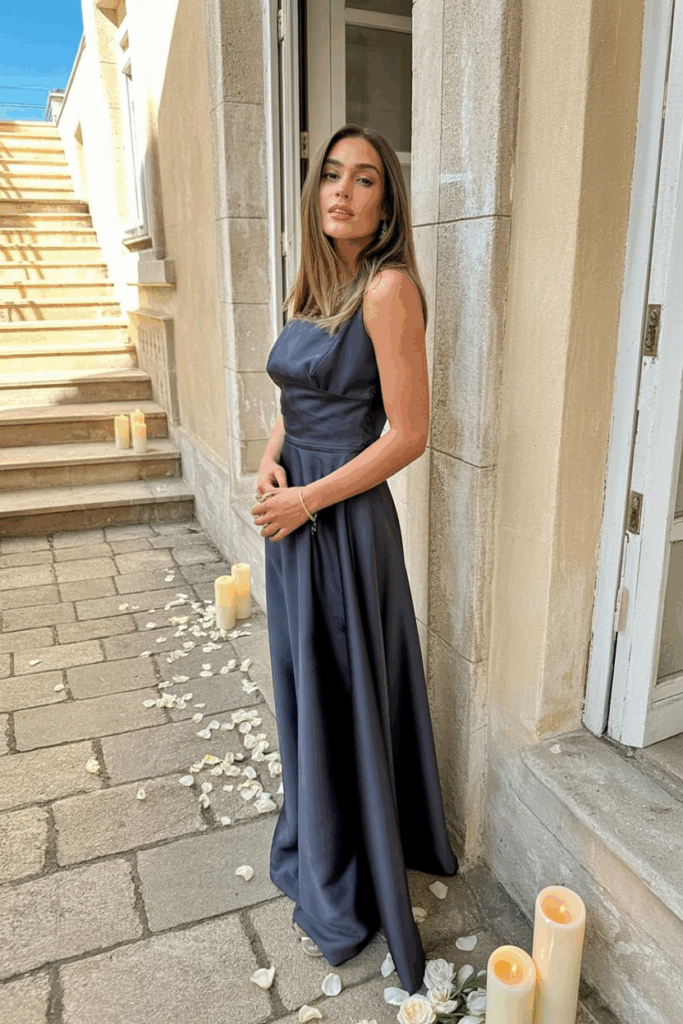
So I started paying attention. What makes a black tie wedding guest dress feel right? What makes it memorable without trying too hard?
This guide pulls together what I’ve learned. It’s not about rules—it’s about finding that sweet spot between polished and personal.
Let’s dive in.
1. Understanding the Black Tie Dress Code
Black tie calls for floor-length gowns or polished formal dresses. Think eveningwear that feels timeless, not trendy. Your dress should honor the setting, complement the occasion, and make you feel like your most poised self.
Accepted styles include:
- Full-length gowns
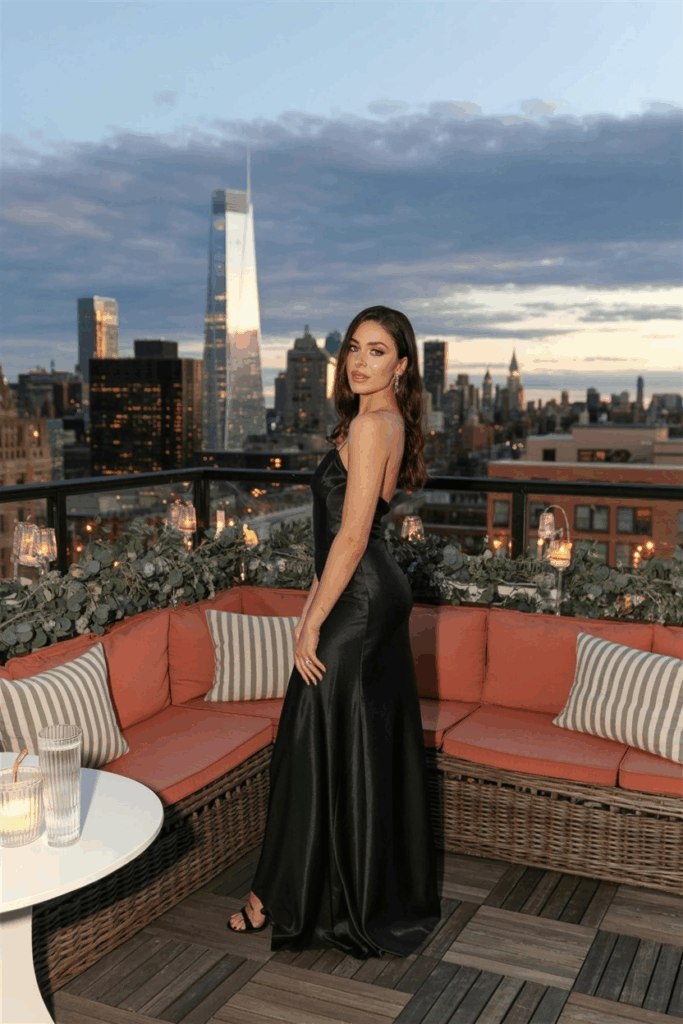
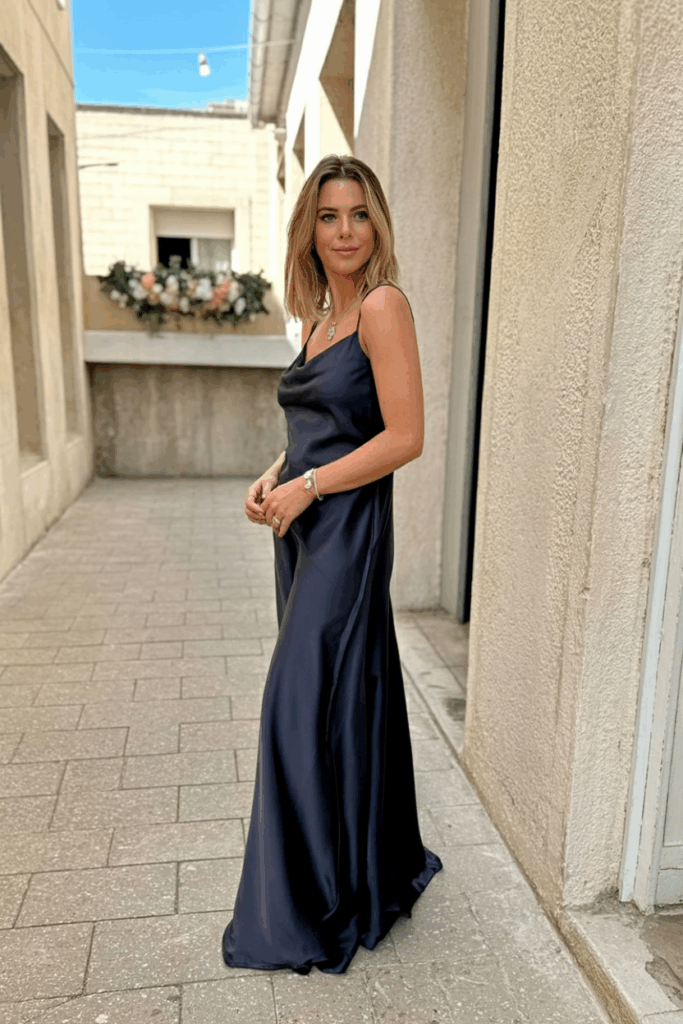
- Chic midi dresses in luxe fabrics
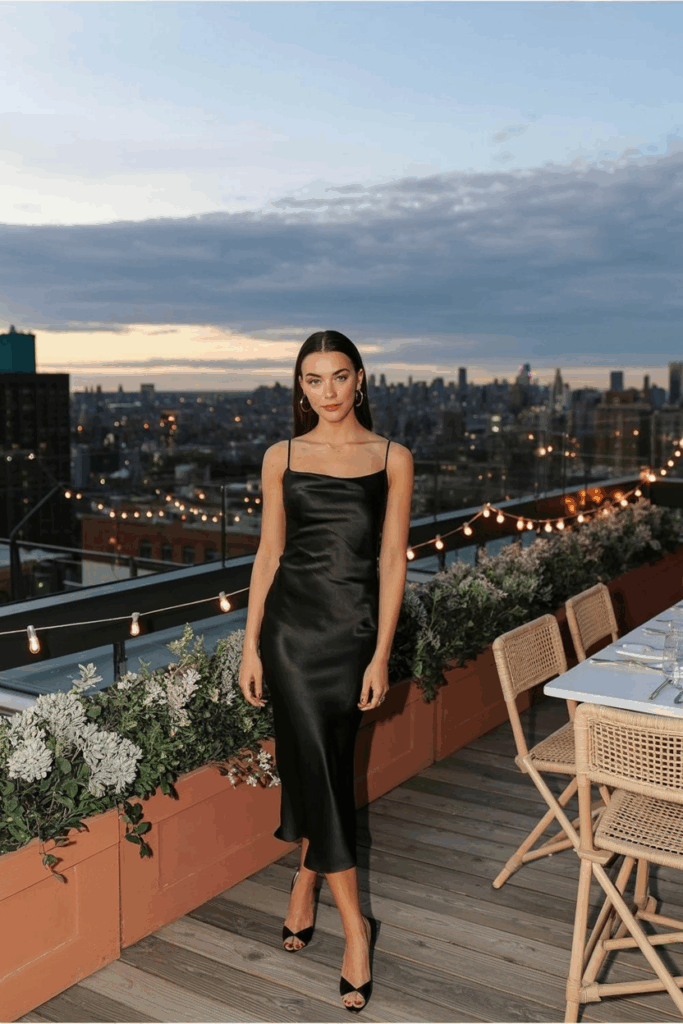
- Elegant dressy separates (with care)
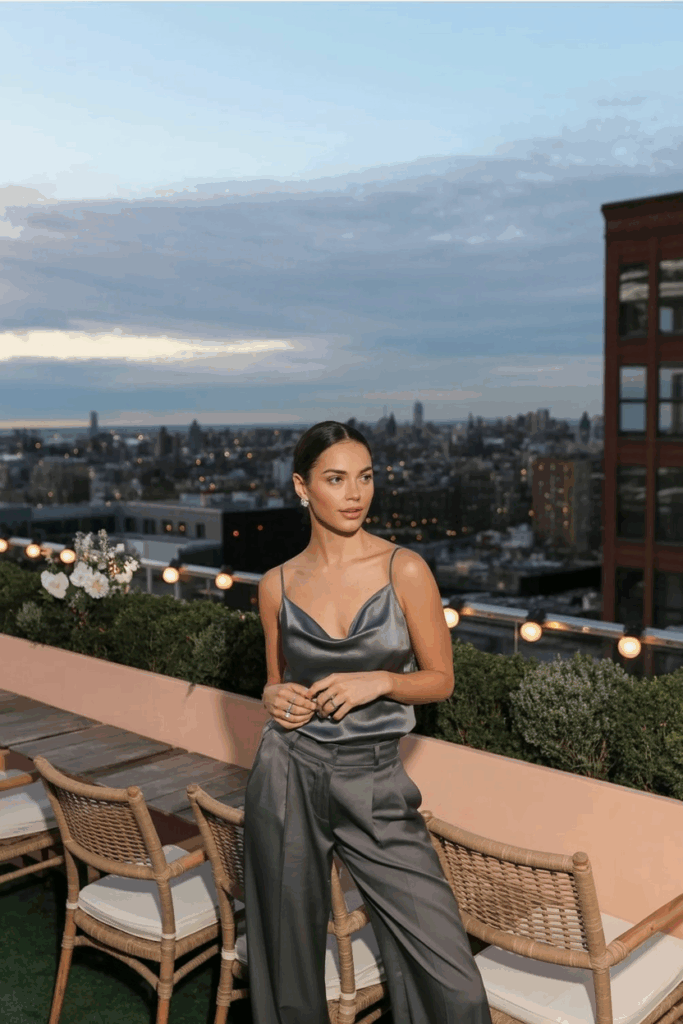
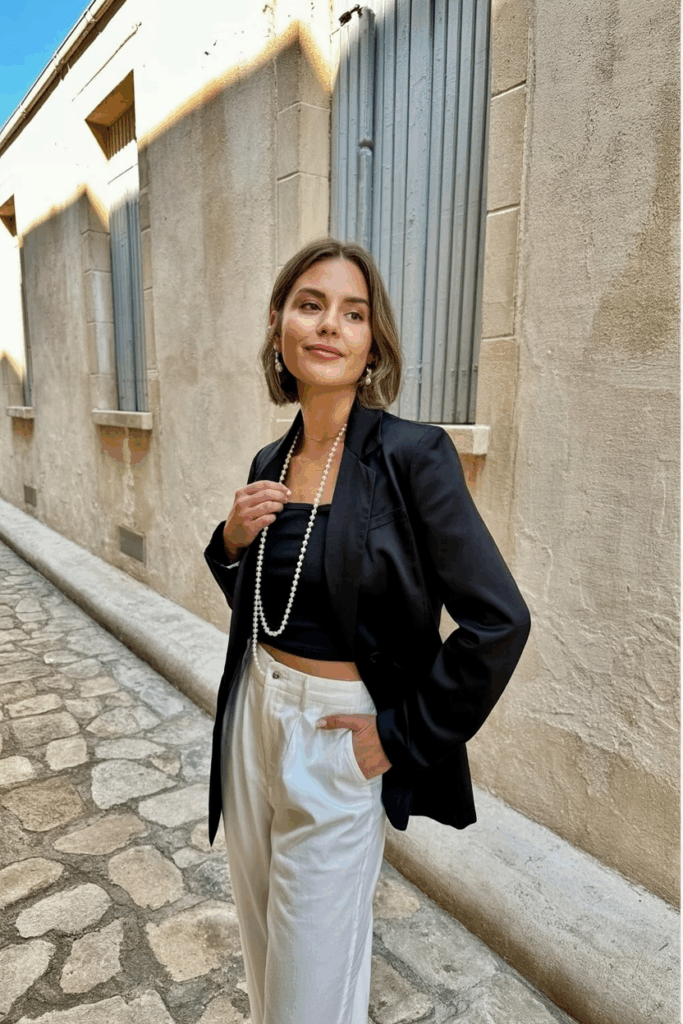
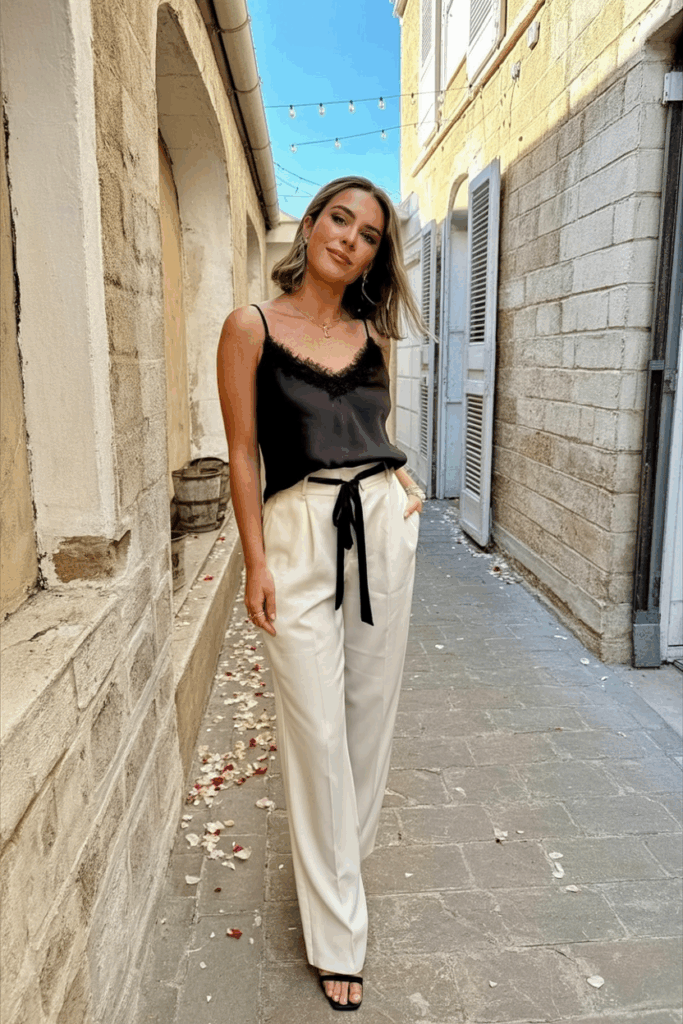
Fabrics matter: Silk, chiffon, velvet, crepe, satin. Choose materials that move beautifully and catch the light without stealing the spotlight.
2. Silhouettes That Speak Softly but Clearly
Choose a silhouette that flatters your frame and feels effortless to move in. It should be tailored—not tight—and flowing—not bulky.
Refined silhouettes include:
- A-line gowns with subtle pleating or volume
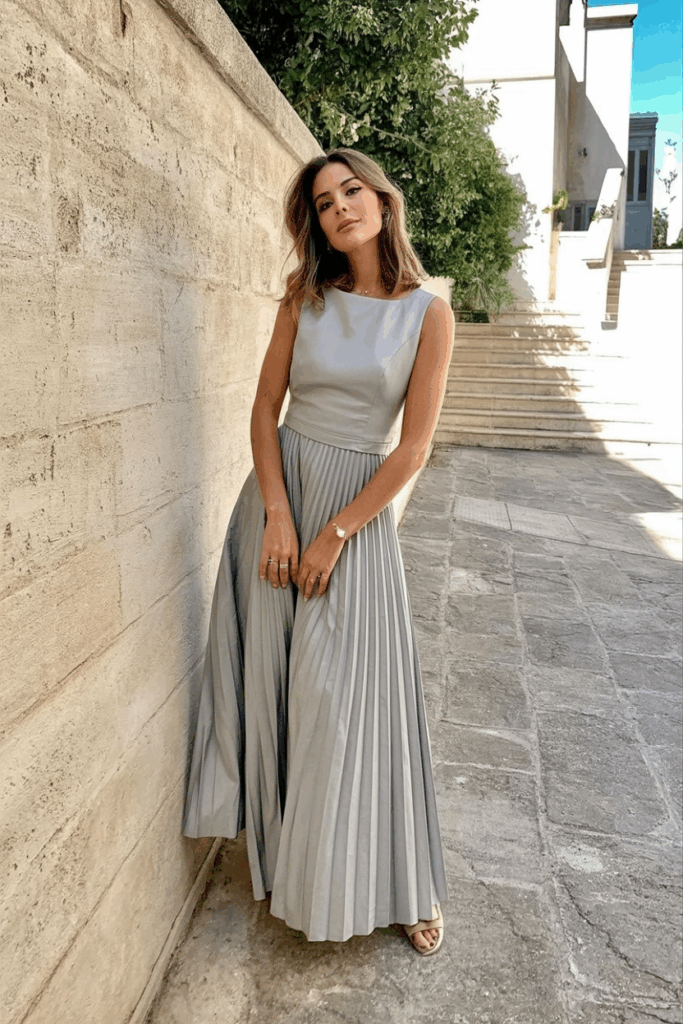
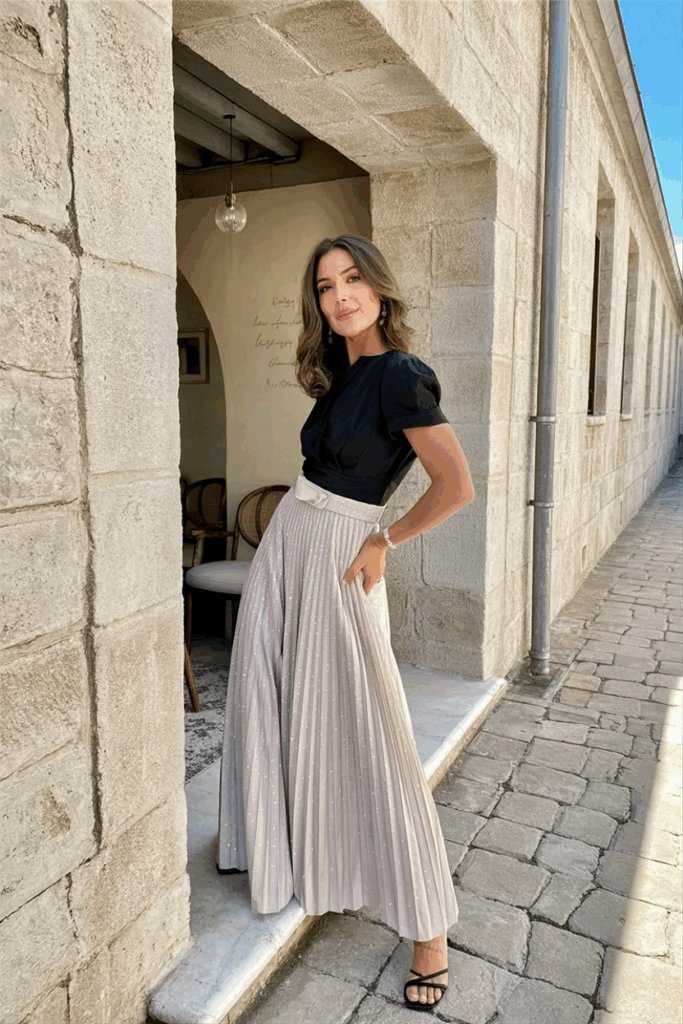
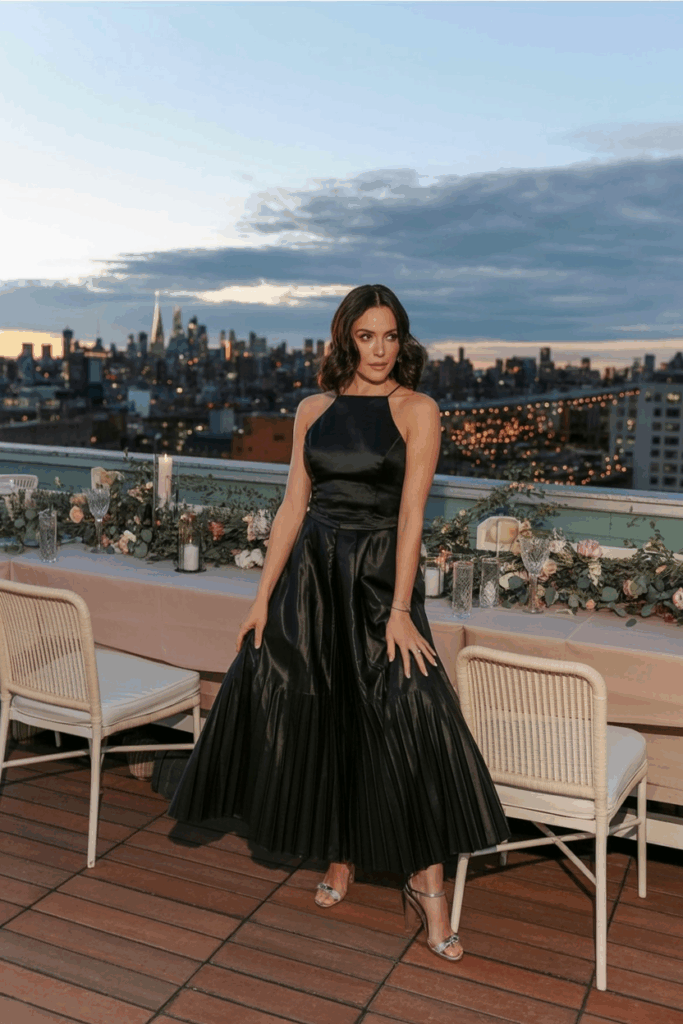
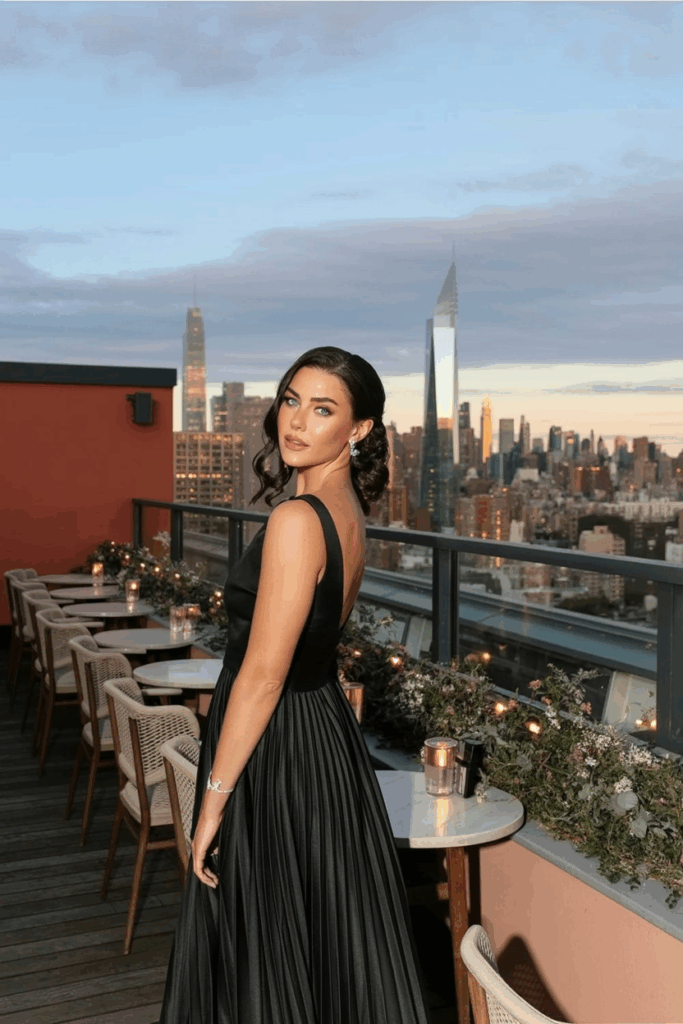
- Bias-cut dresses that skim the body
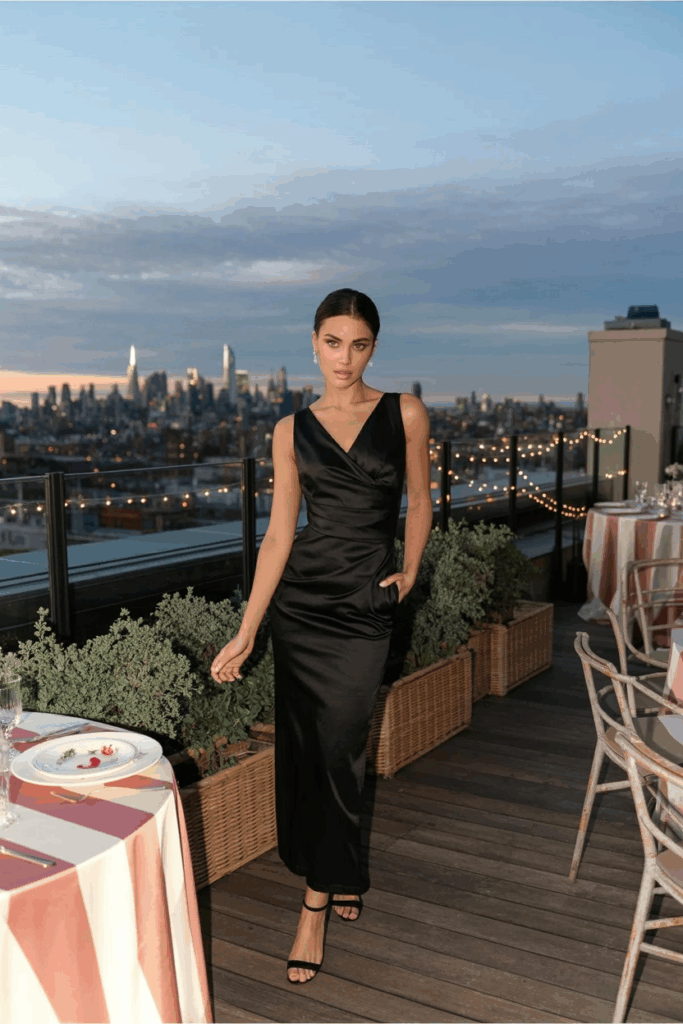
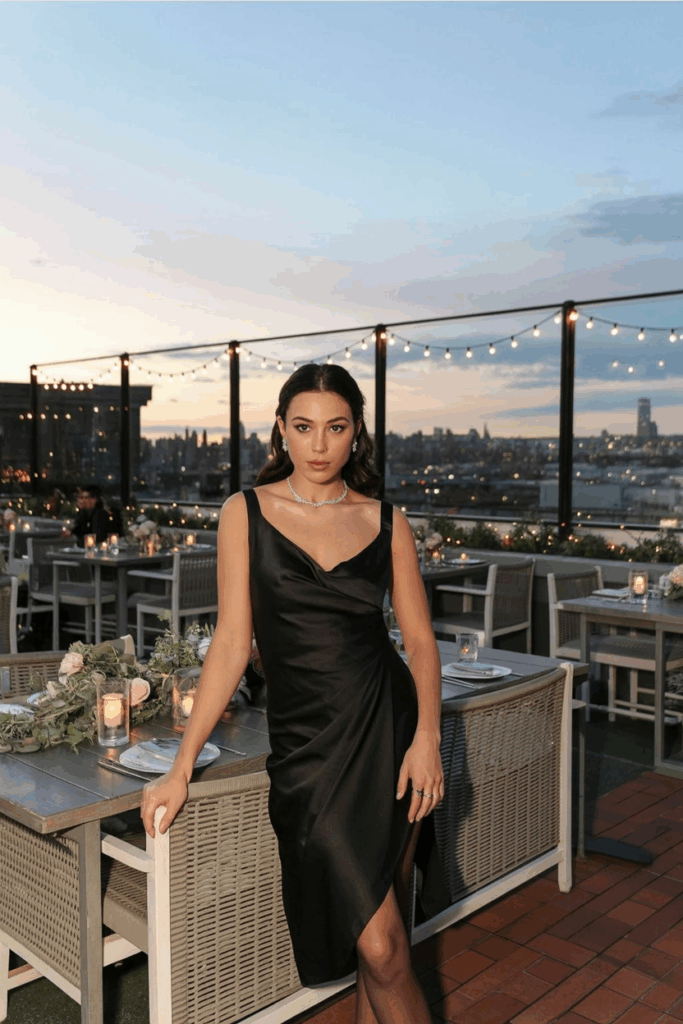
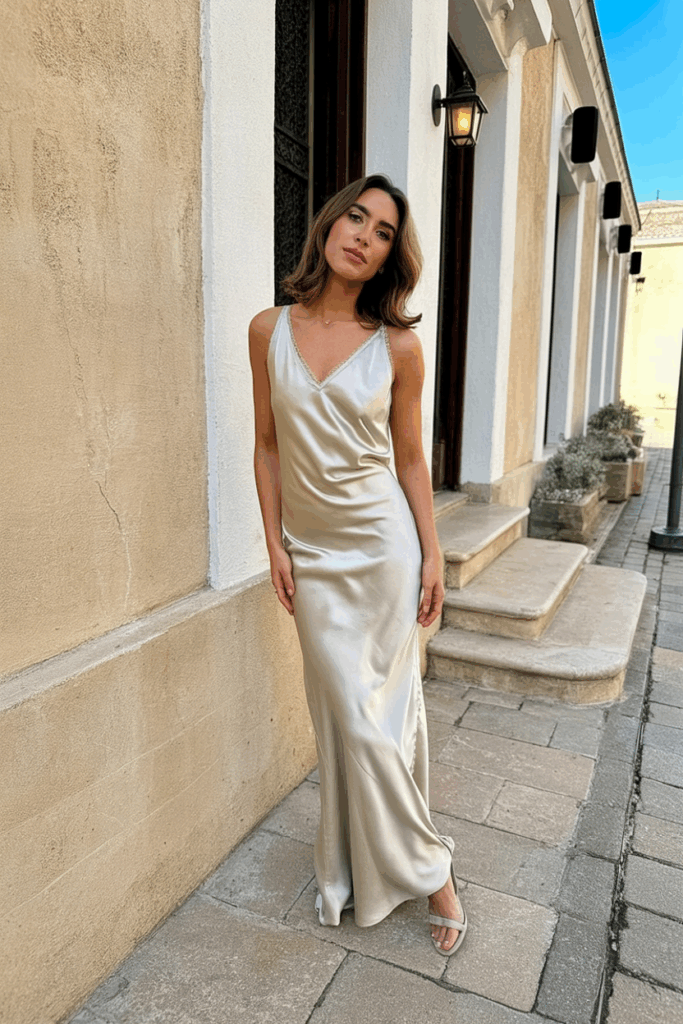
- Column or sheath dresses for a sleek, minimalist profile
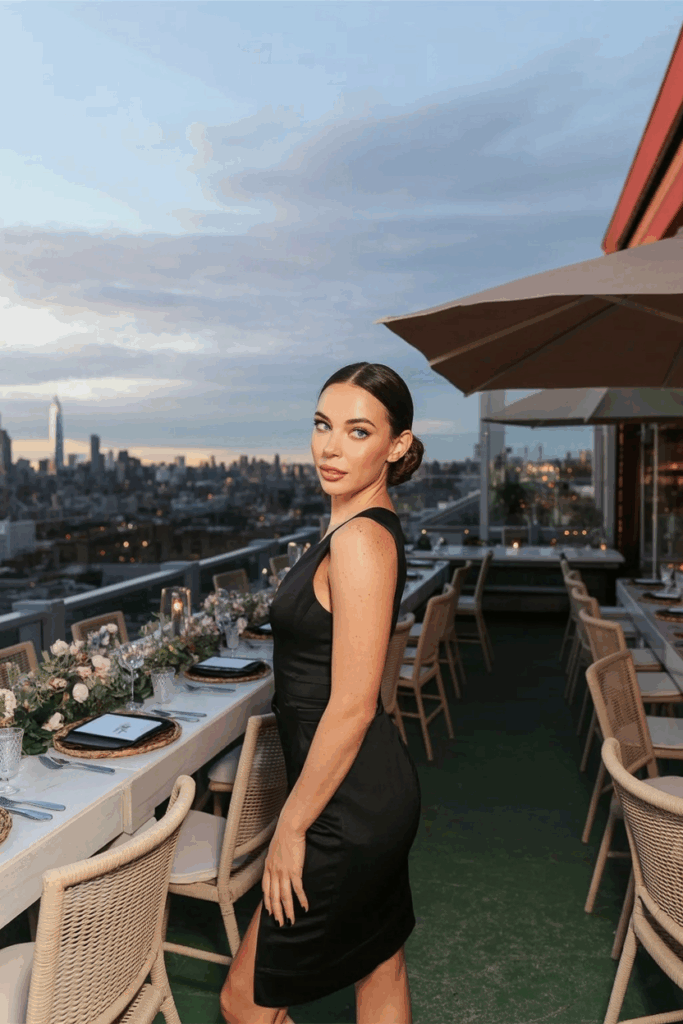
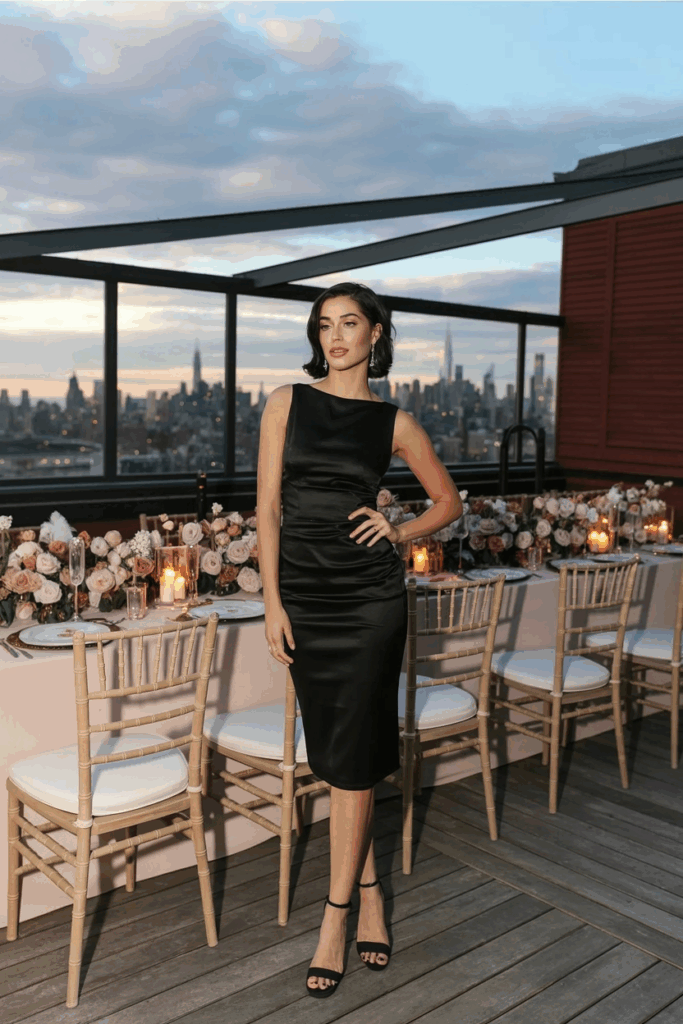
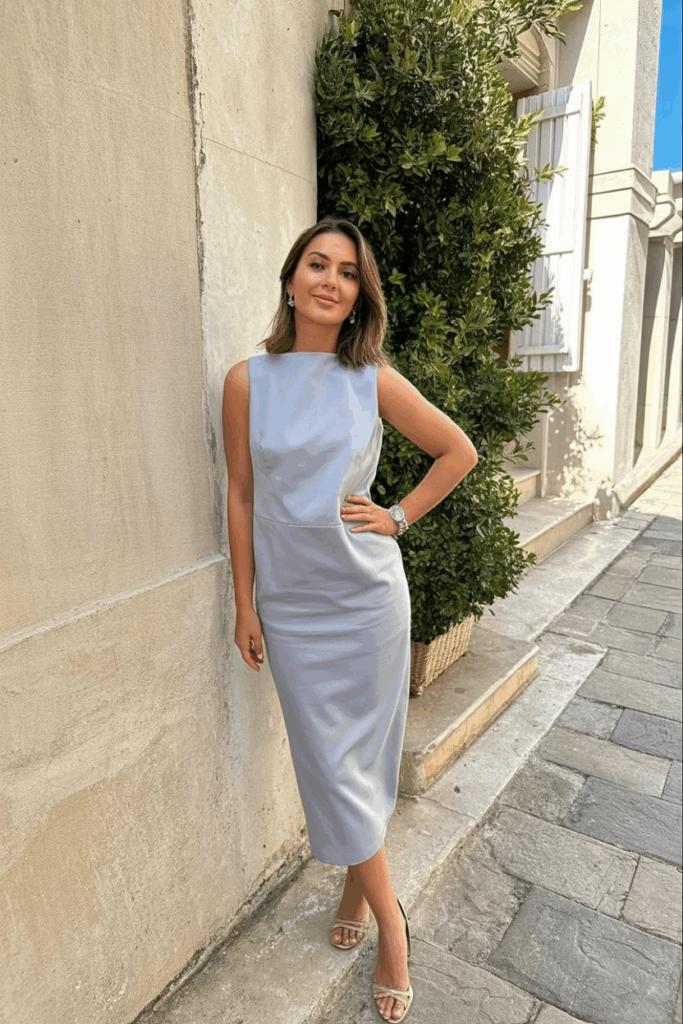
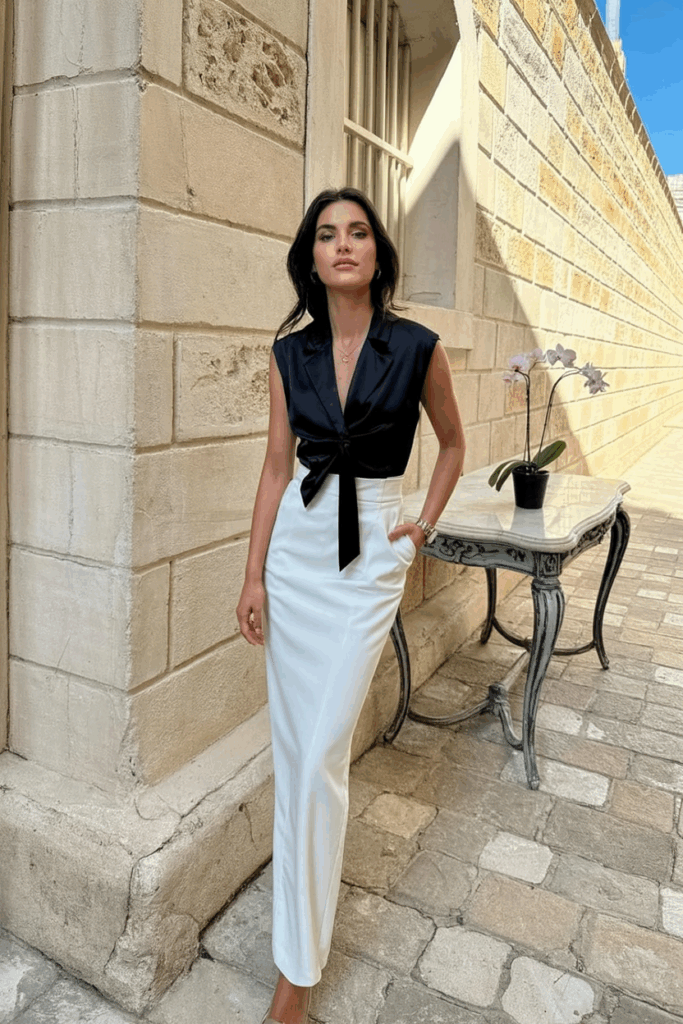
- Wrap-style gowns with soft draping and waist definition
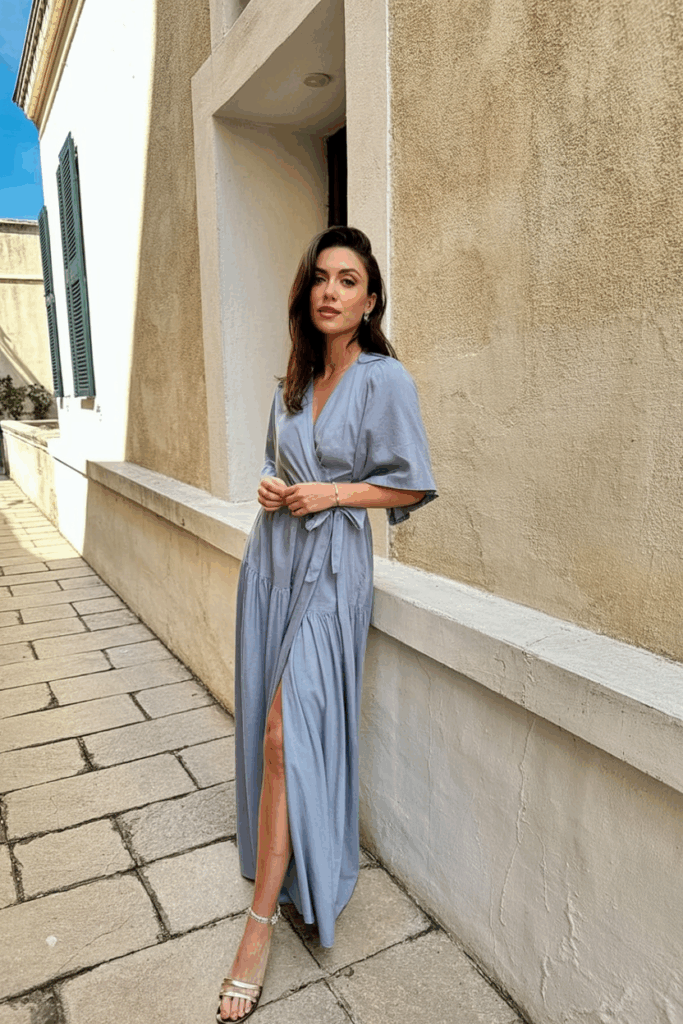
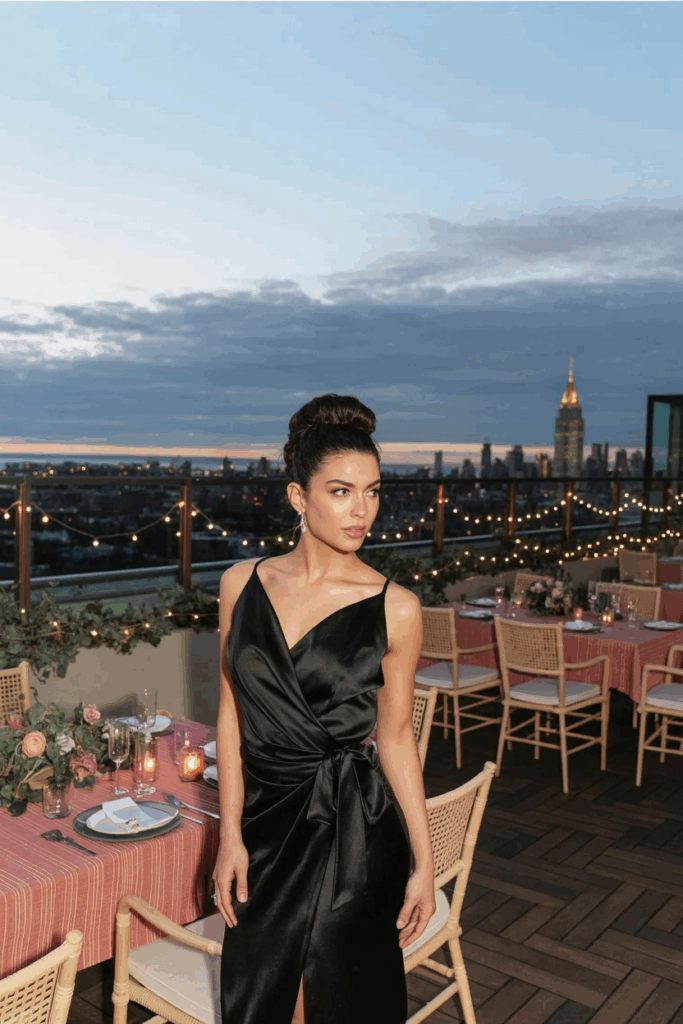
Necklines to consider: off-the-shoulder, bateau, v-neck, or halter. Modesty can be just as stunning as drama when the lines are right.
3. Color Palettes: Deep, Soft, and Elegant
Black is always appropriate—but it’s not your only option. Jewel tones and soft neutrals carry just as much weight when chosen with care.
Elegant color options:
- Emerald, navy, burgundy, charcoal
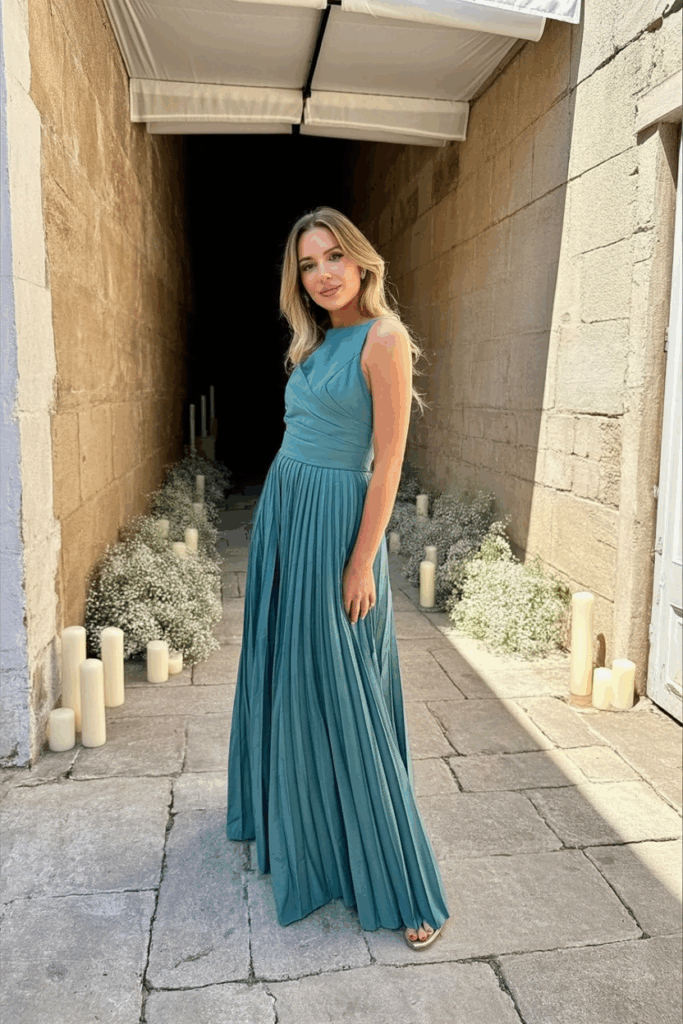
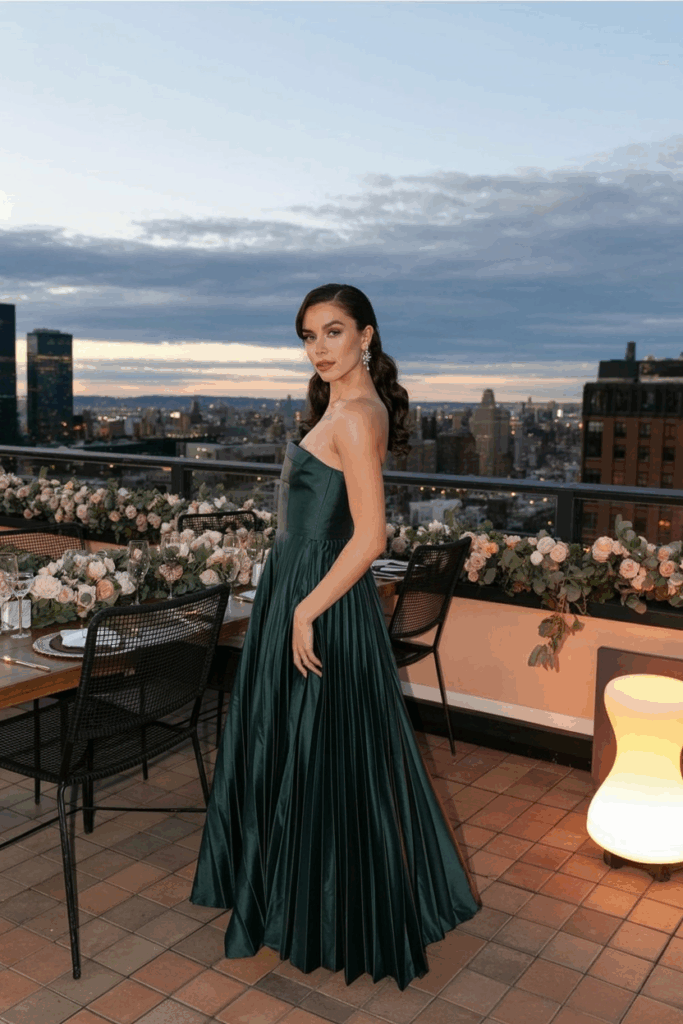
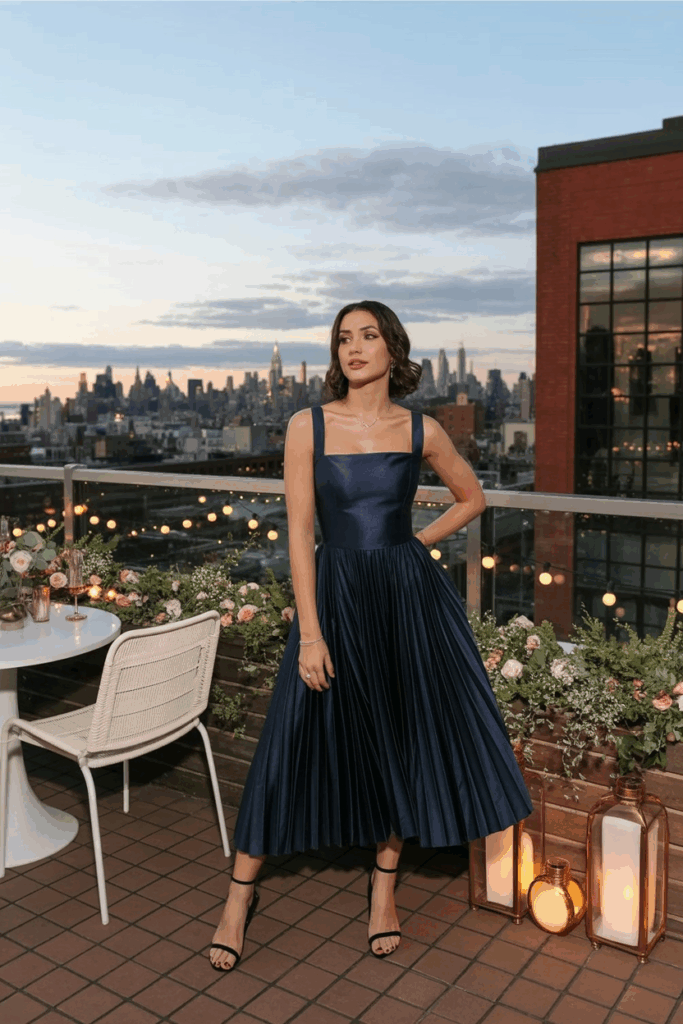
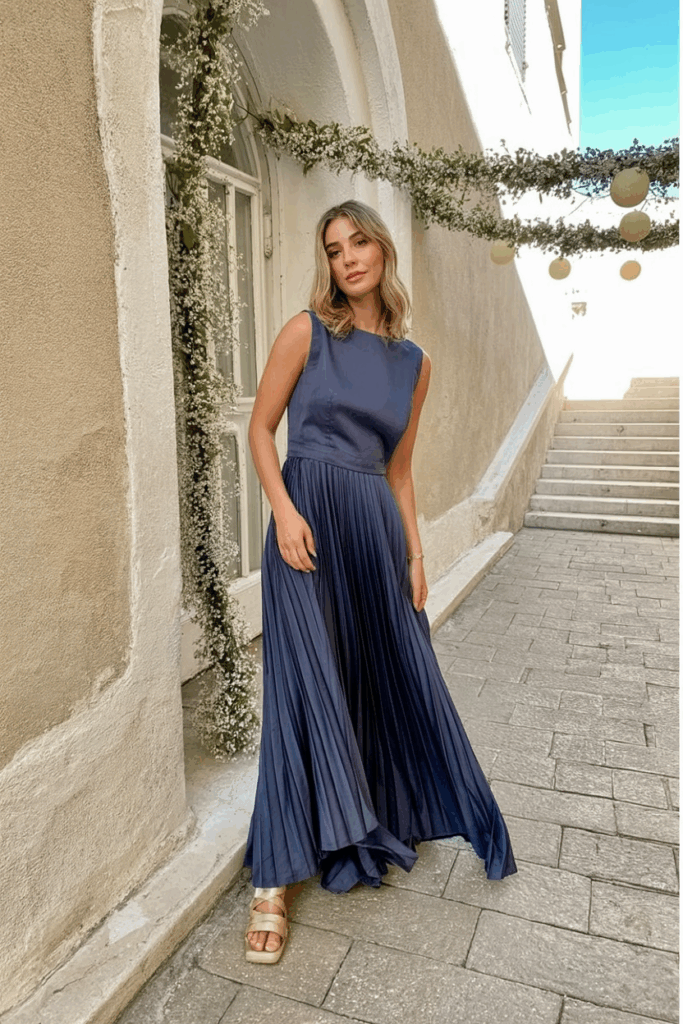
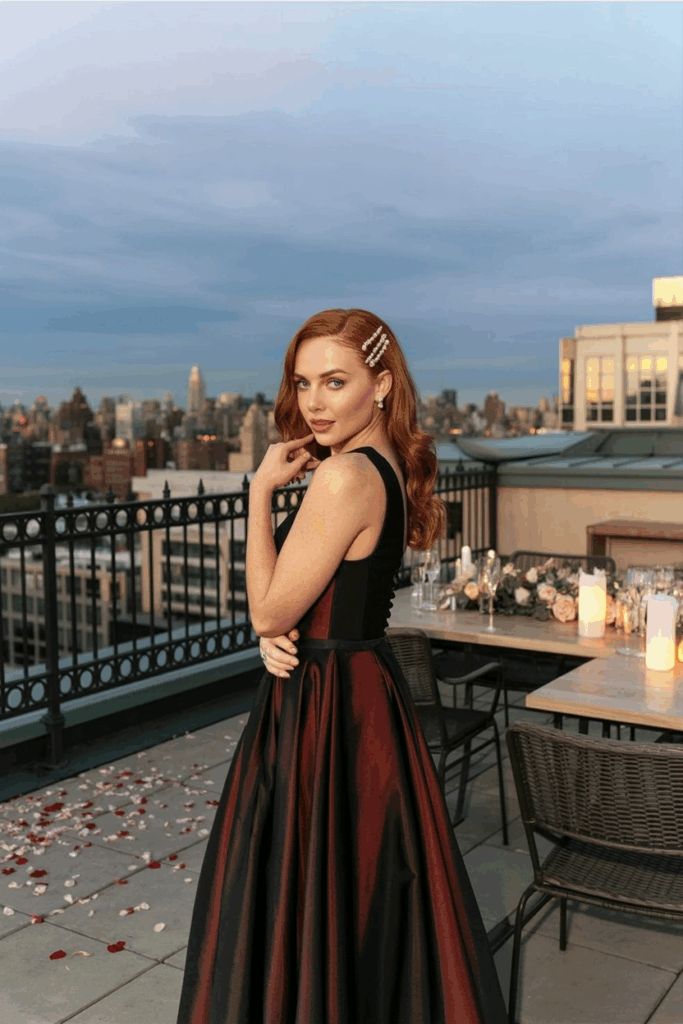
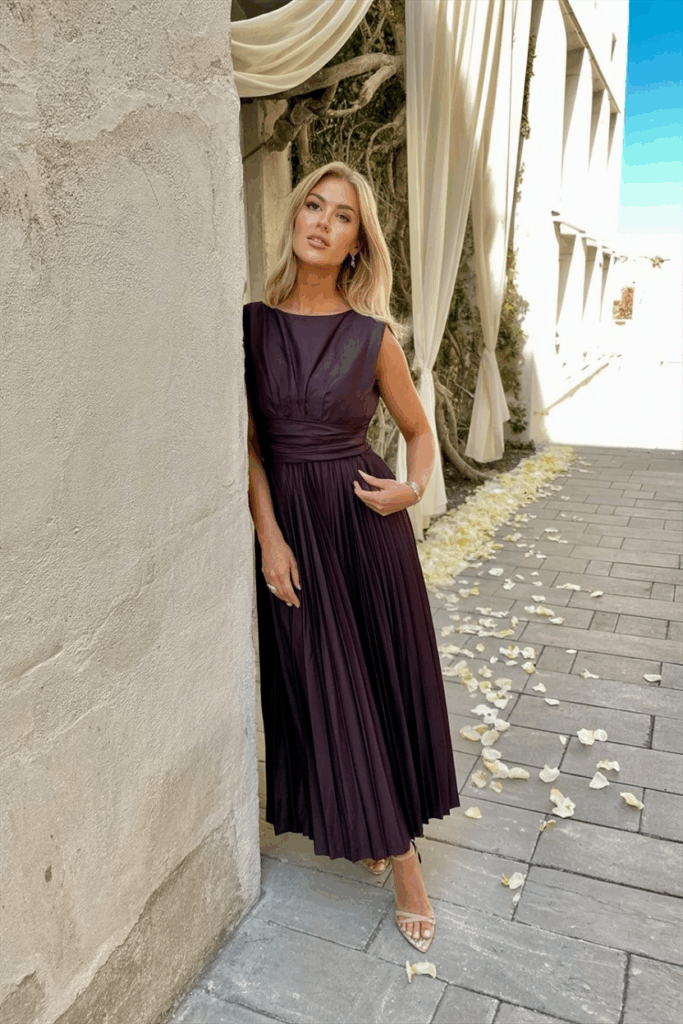
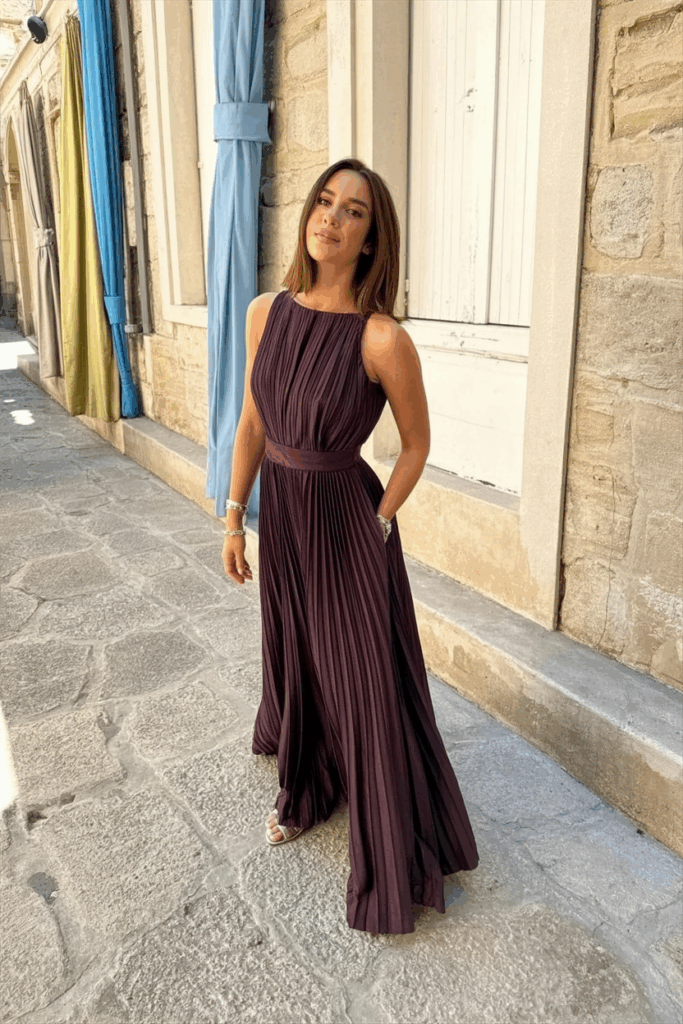
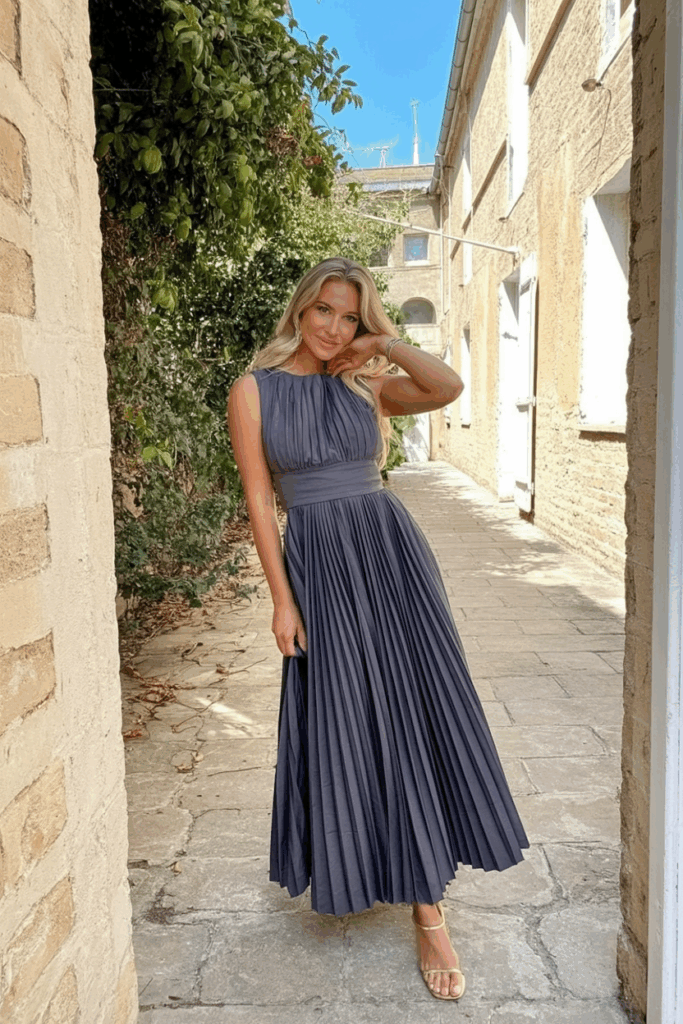
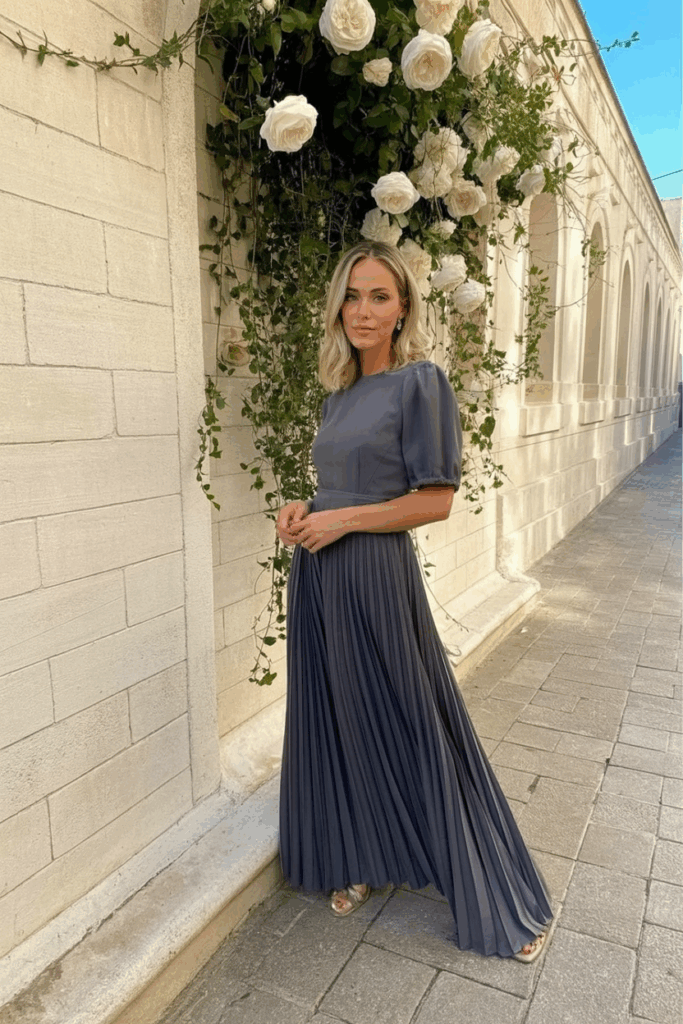
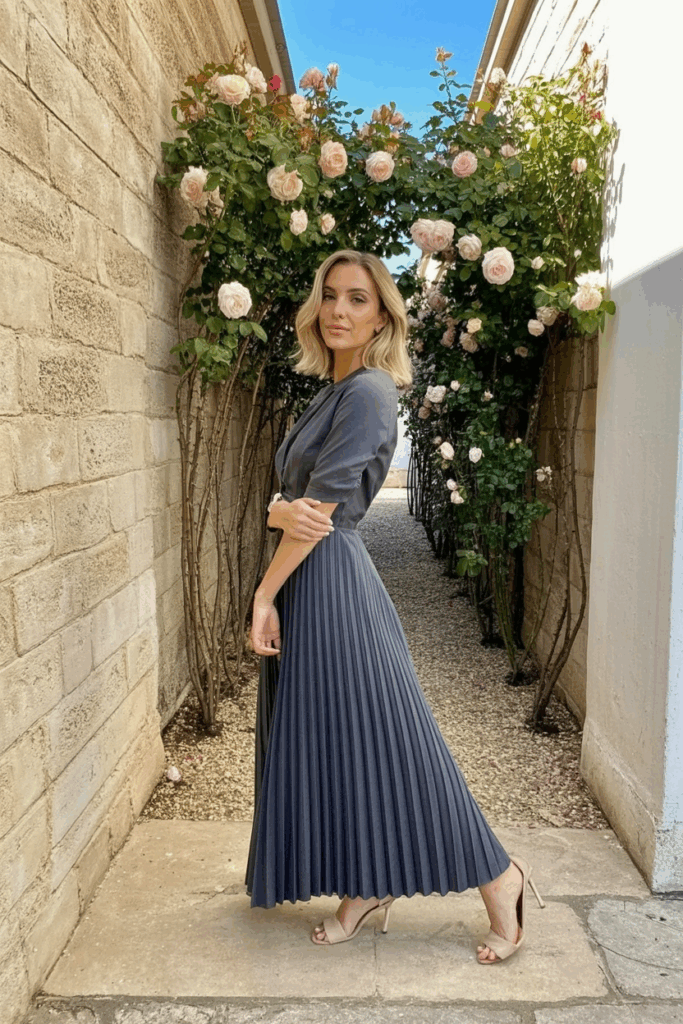
- Champagne, dove gray, midnight blue
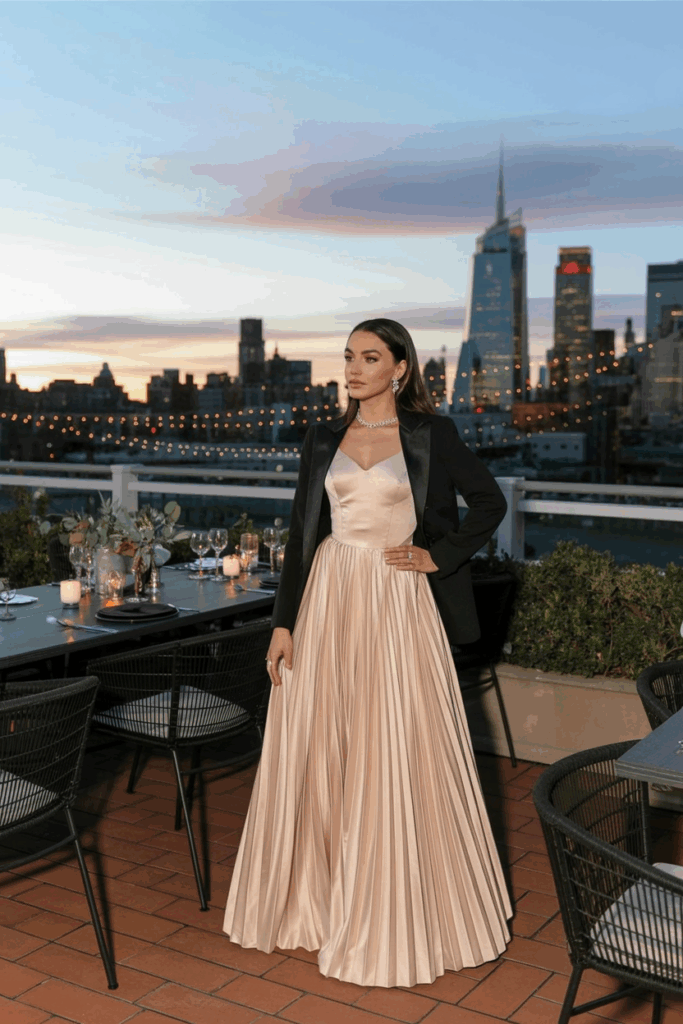
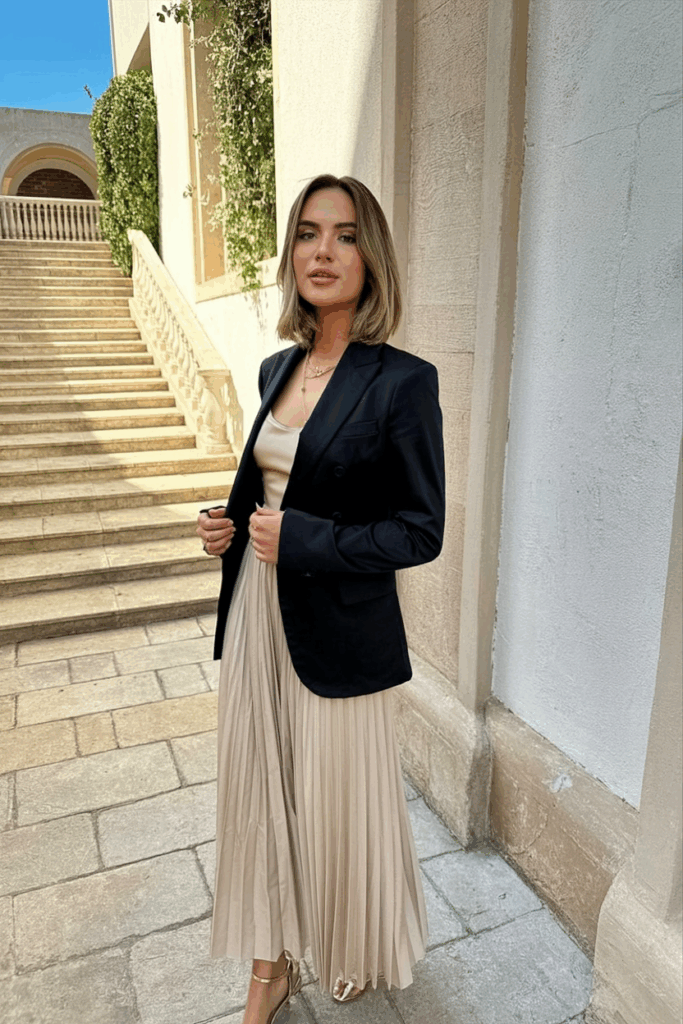
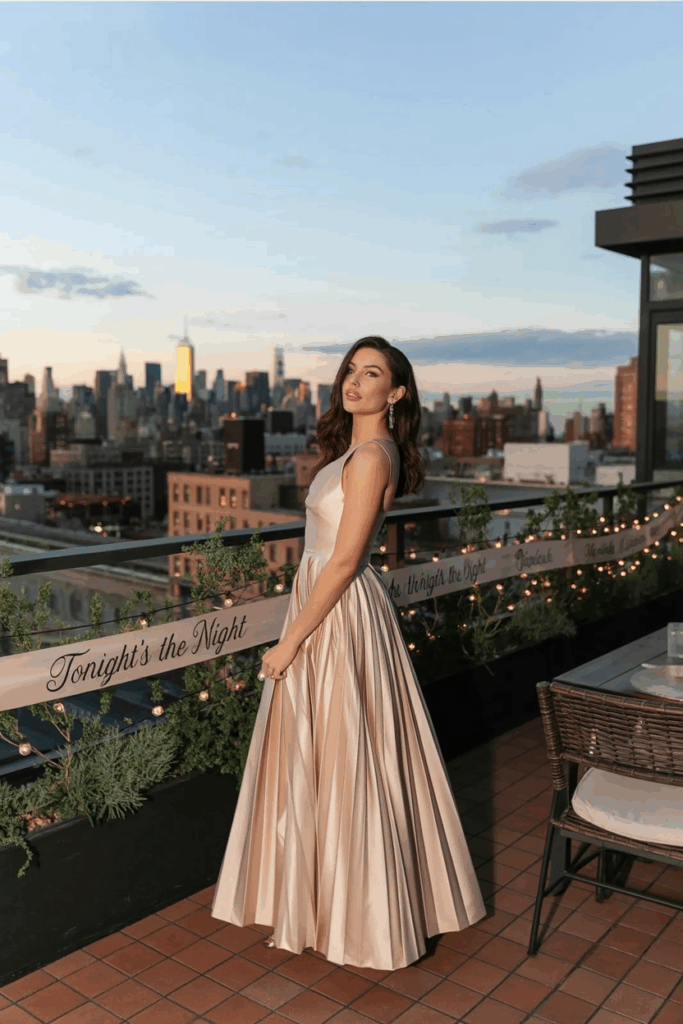
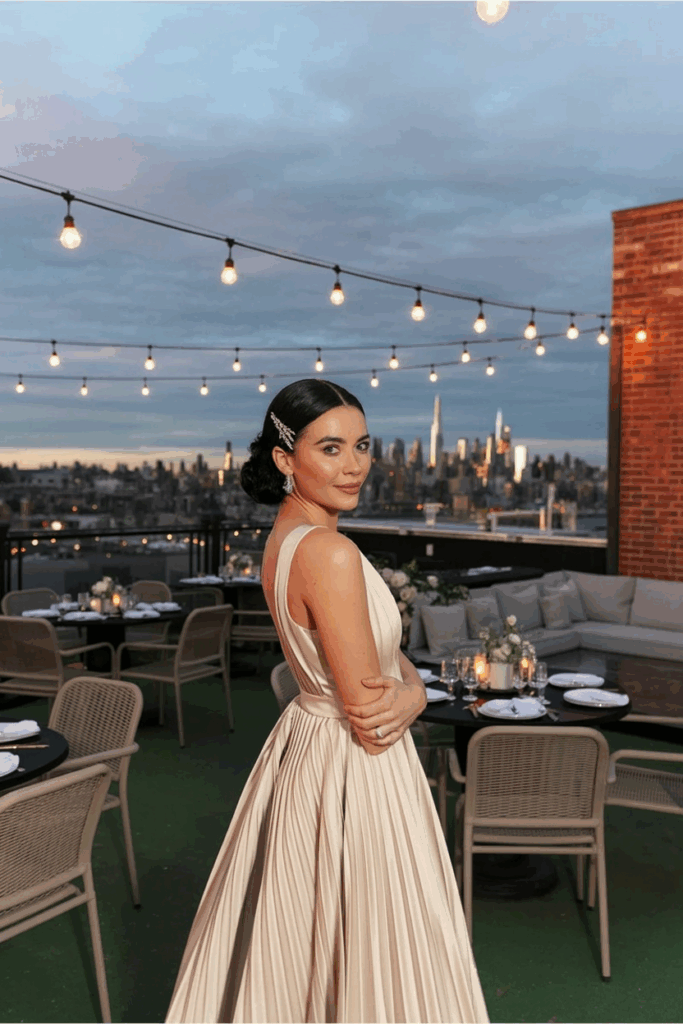
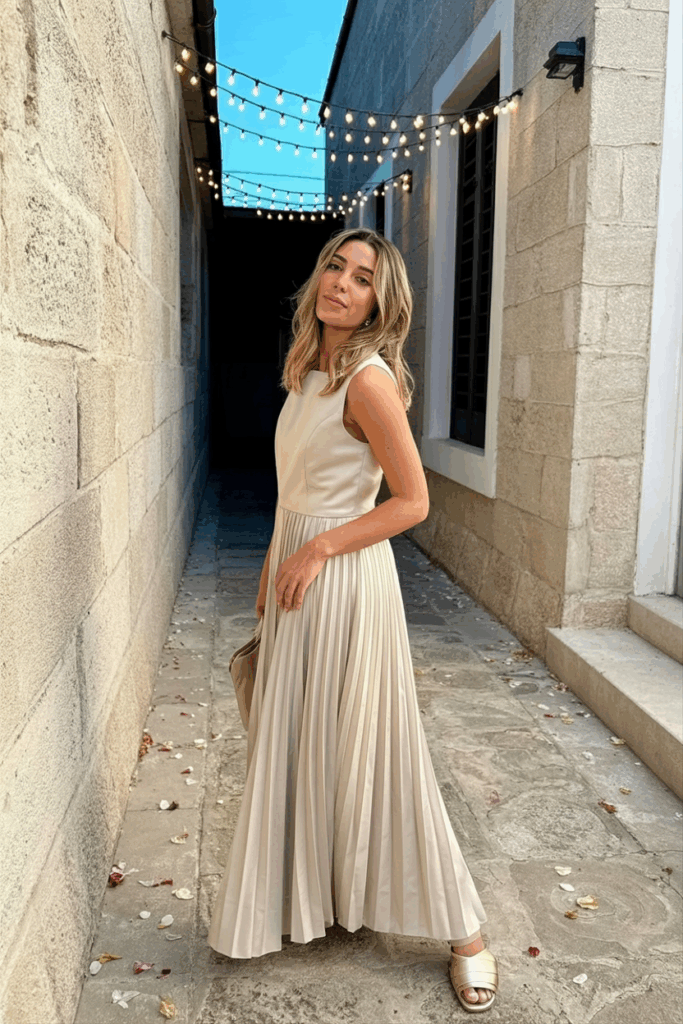
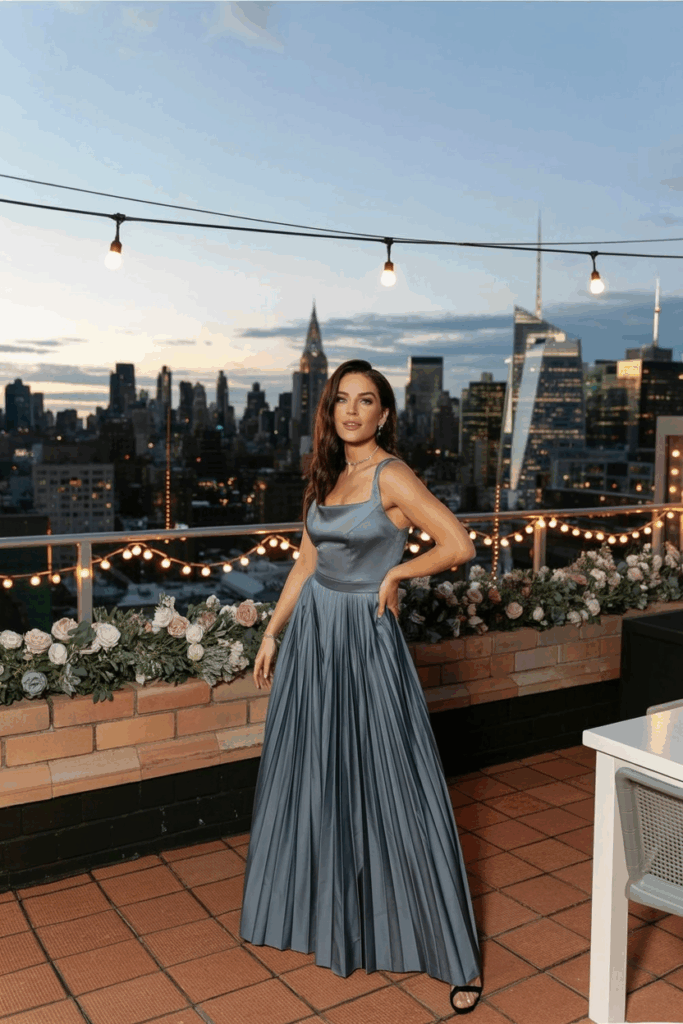
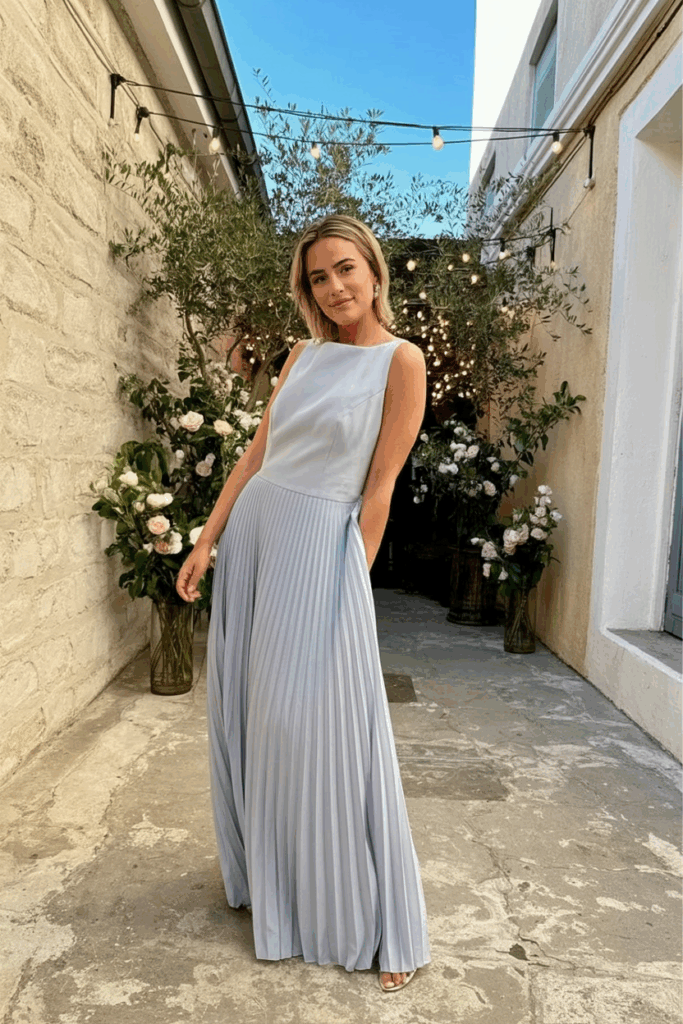
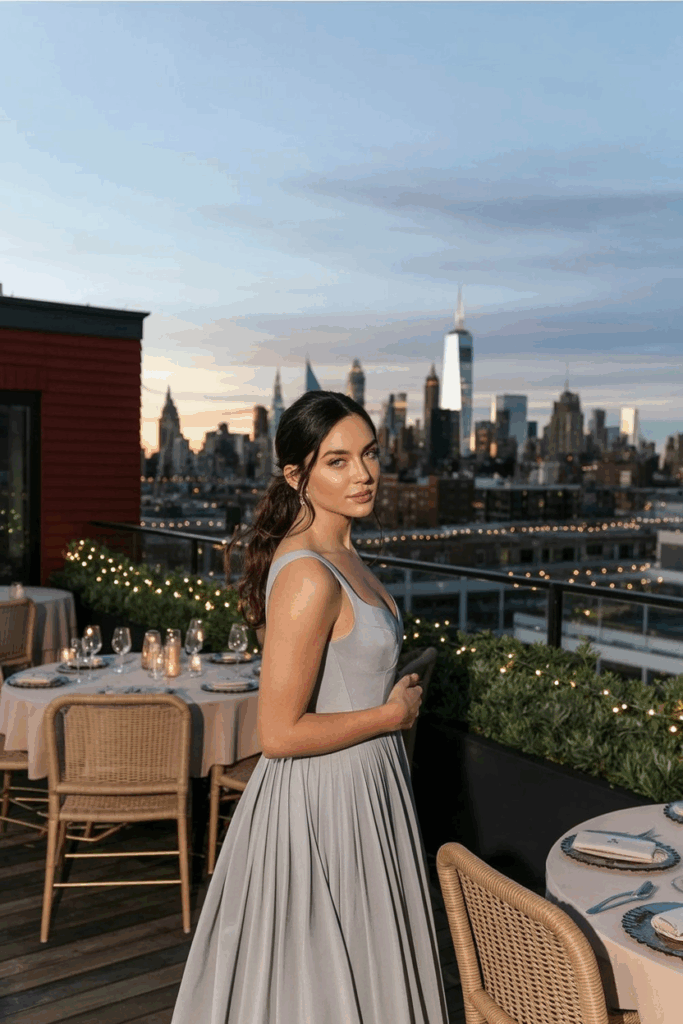
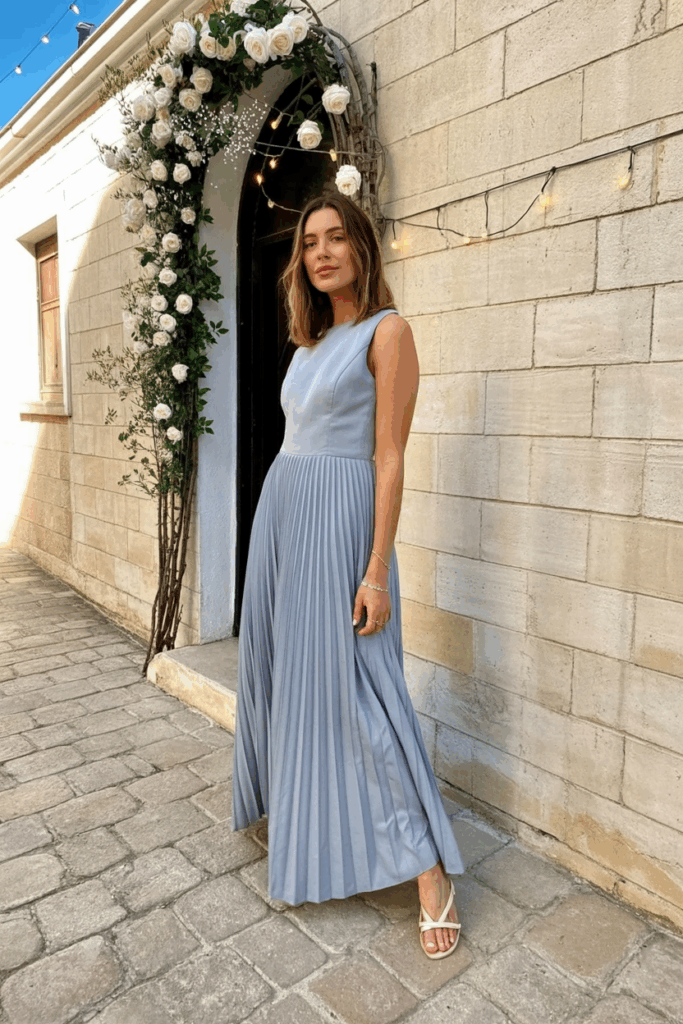
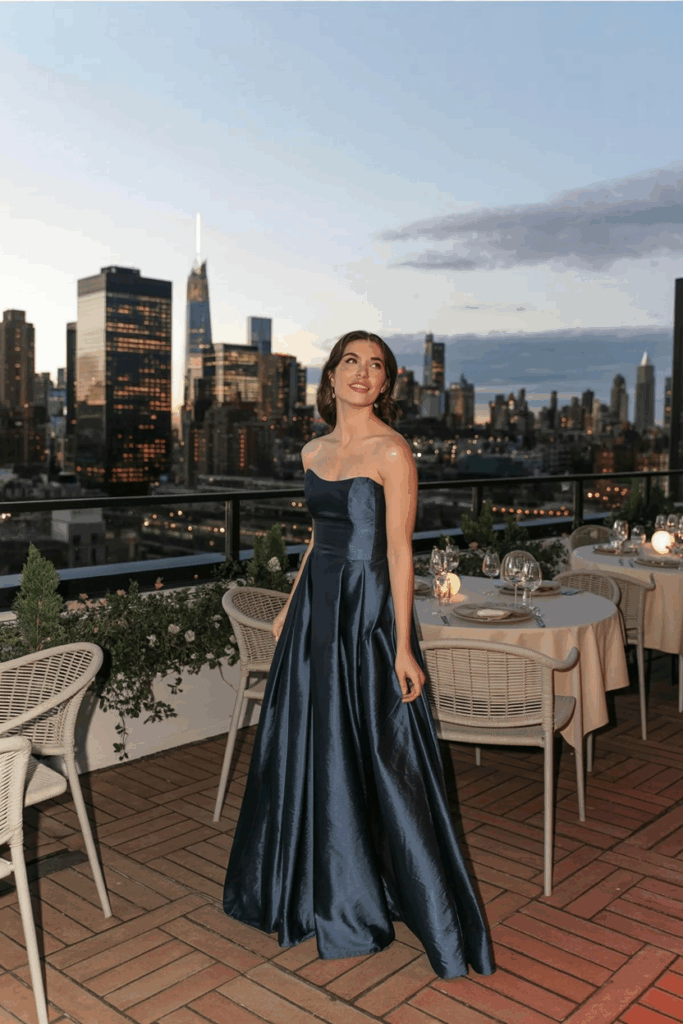
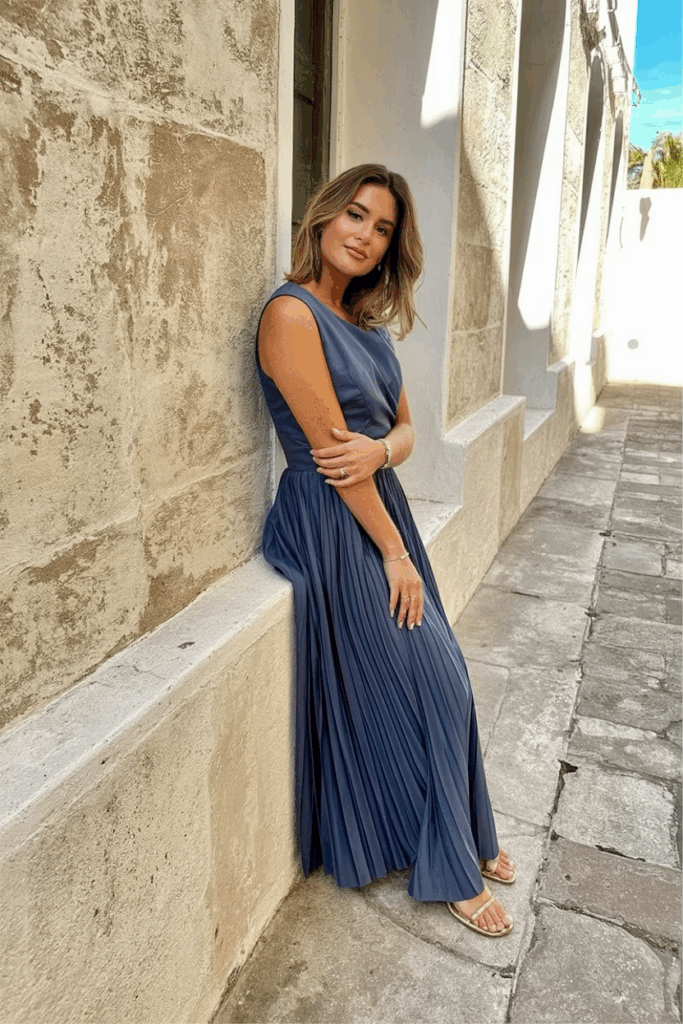
- Terracotta, deep mauve, slate green (especially for fall/winter weddings)

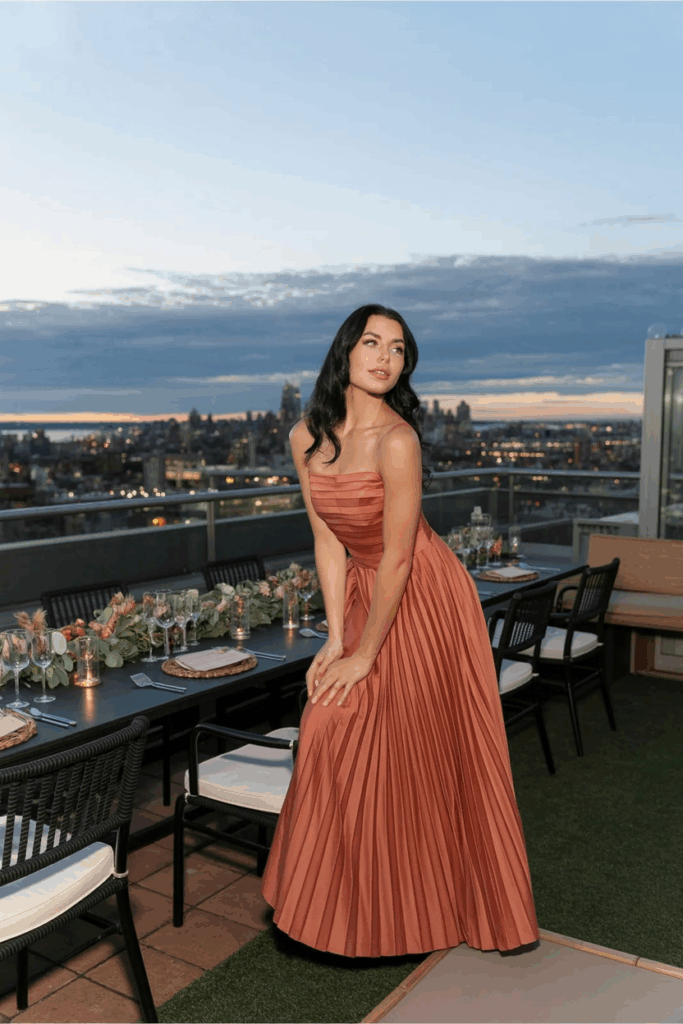
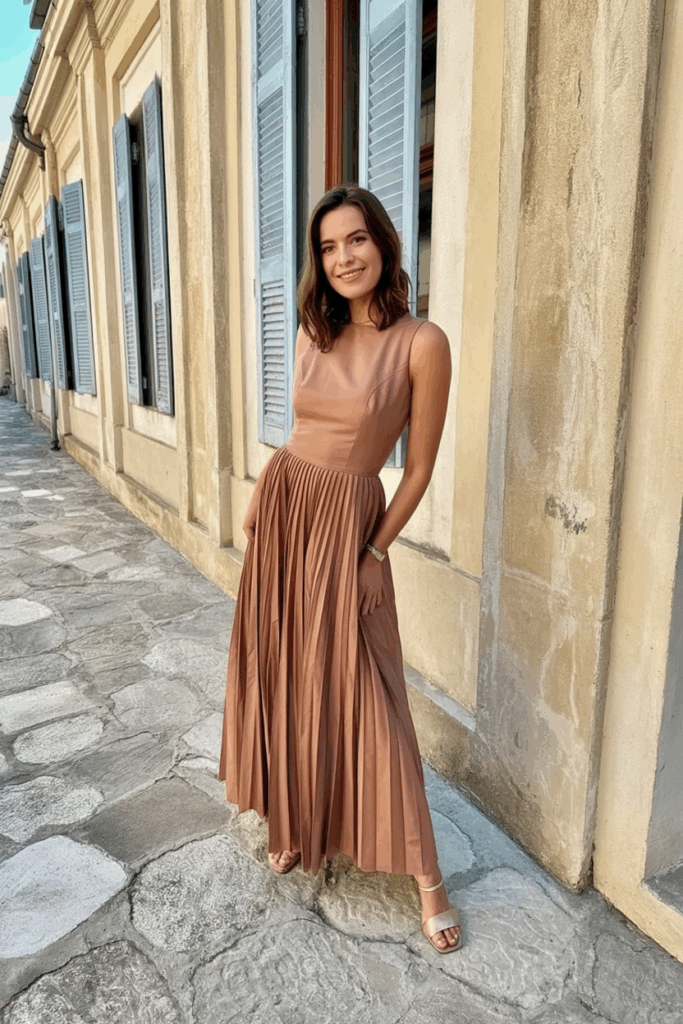
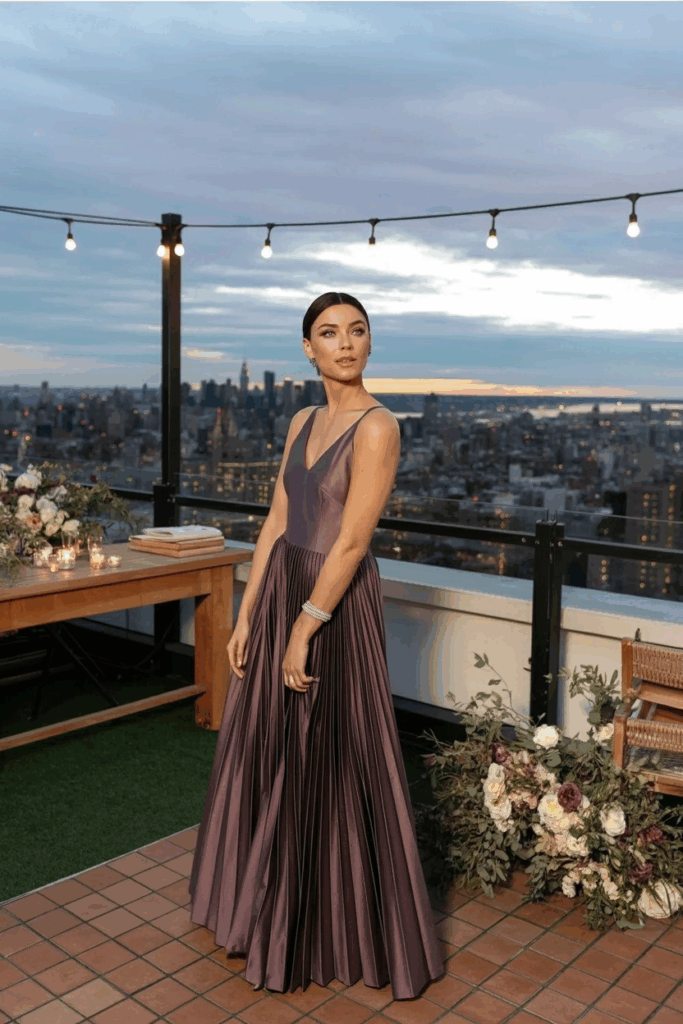
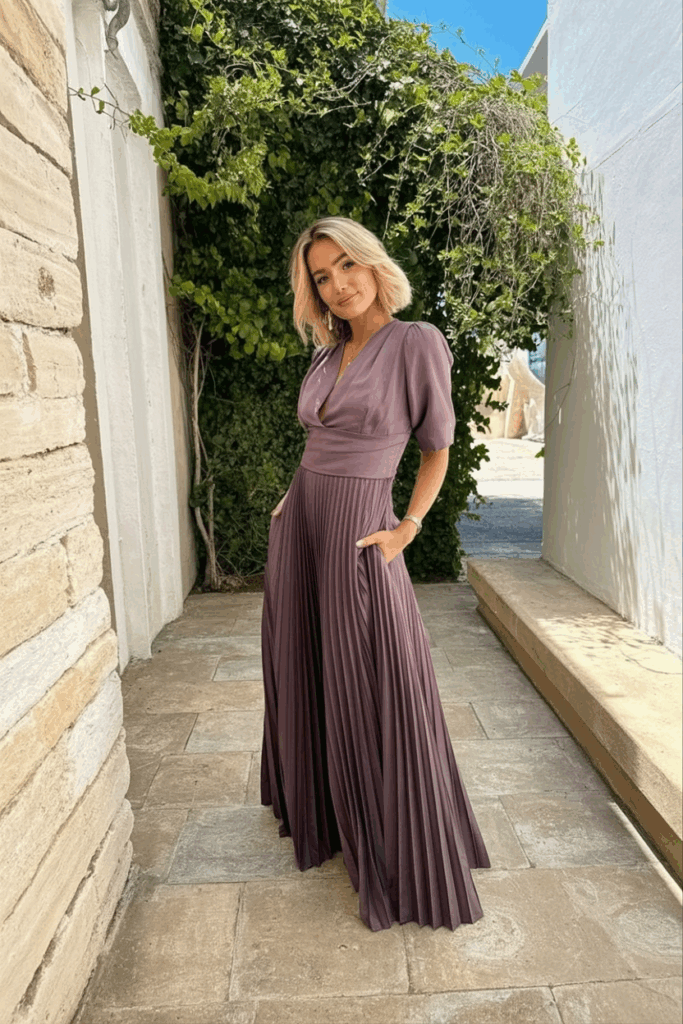
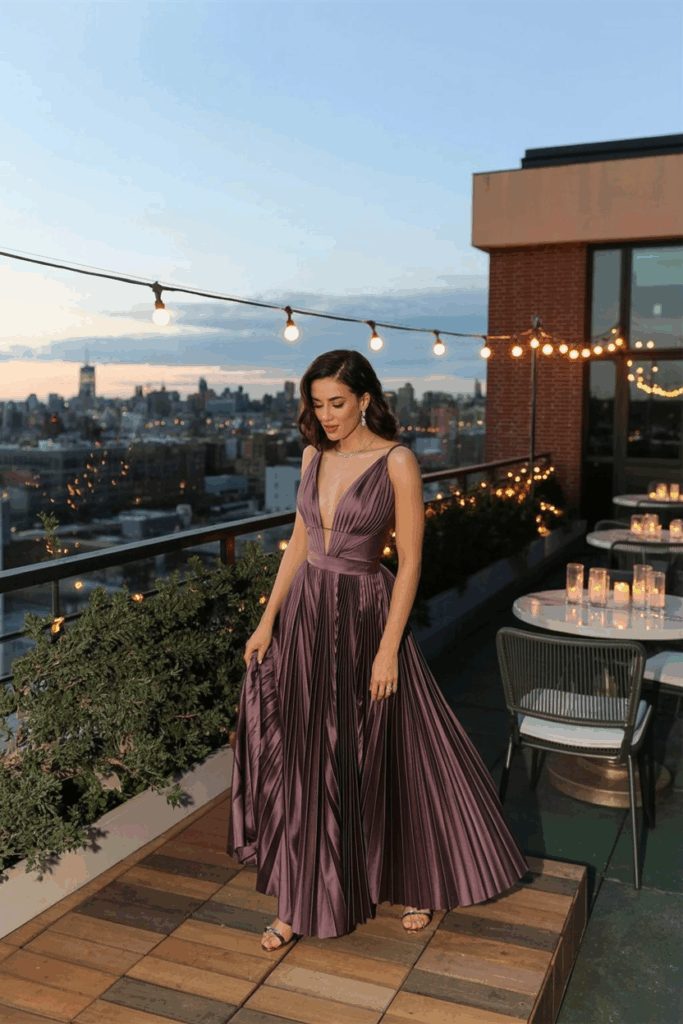
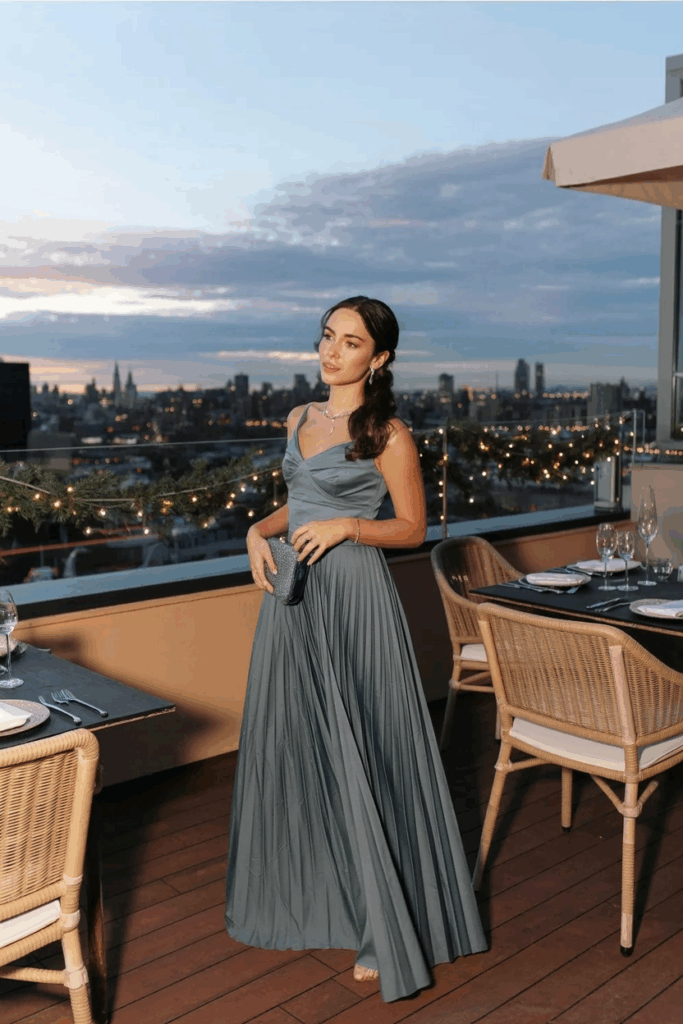
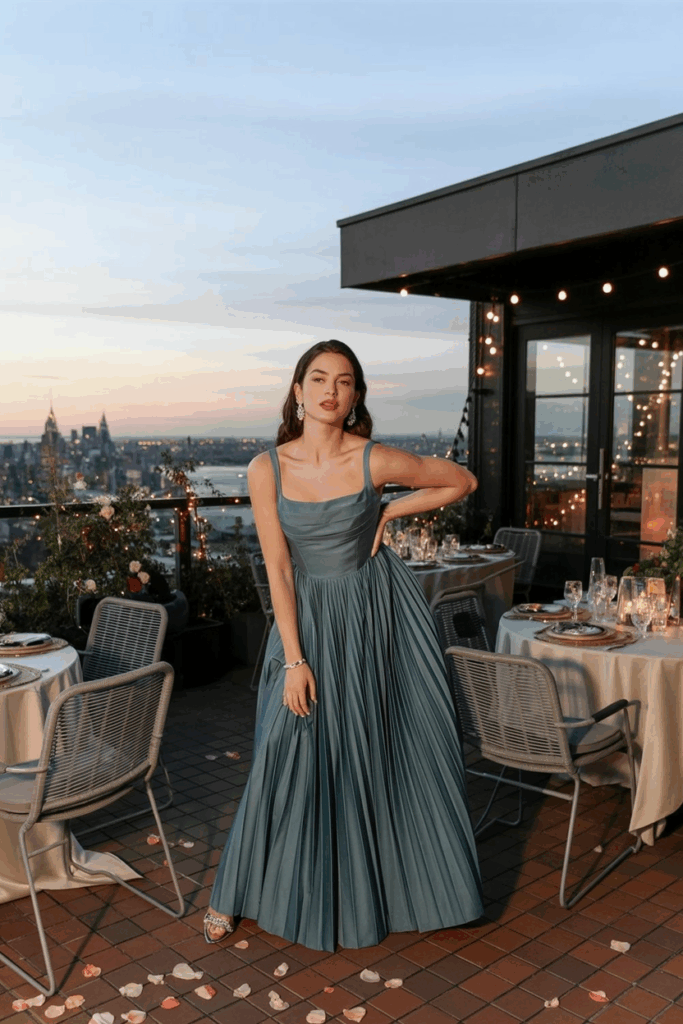
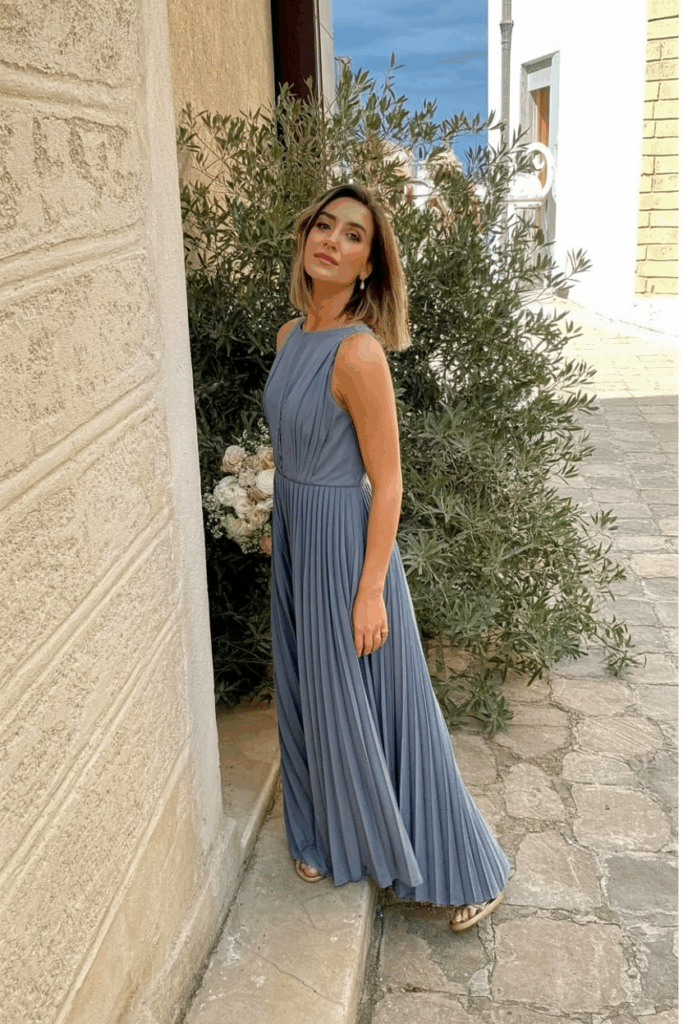
Avoid: bright neons, casual florals, or stark white (which is always reserved for the bride).
4. Fabric & Detail: Subtle Texture, Quiet Glamour
Let the fabric carry the drama, not embellishments. Beading, lace, velvet accents, or a slight shimmer can elevate the look—when used sparingly.
Look for:
- Chiffon overlays that float when you walk
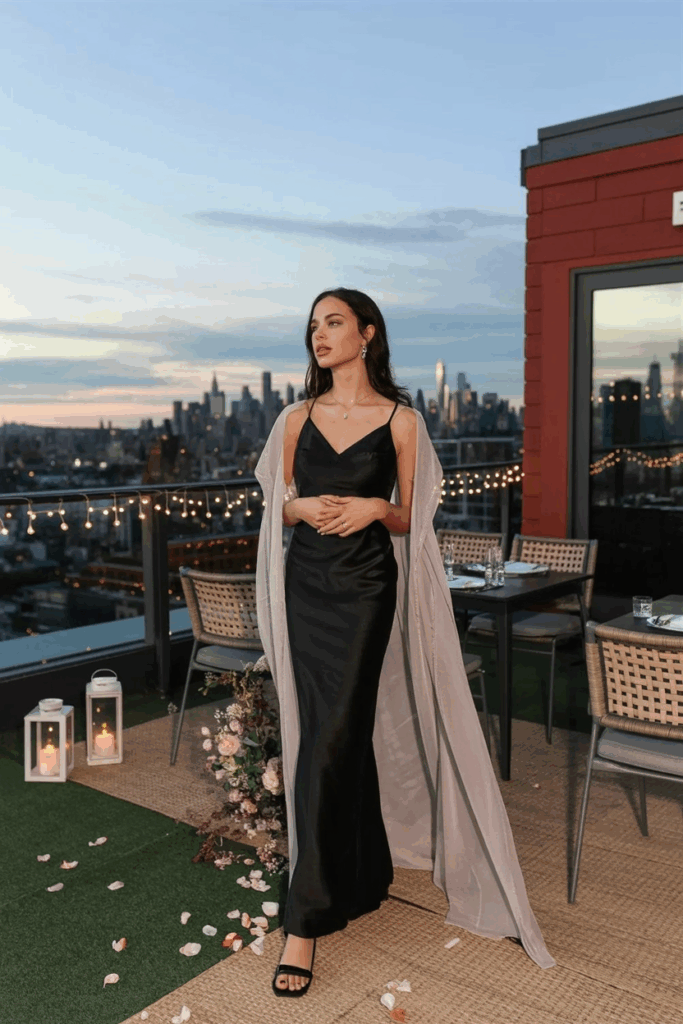
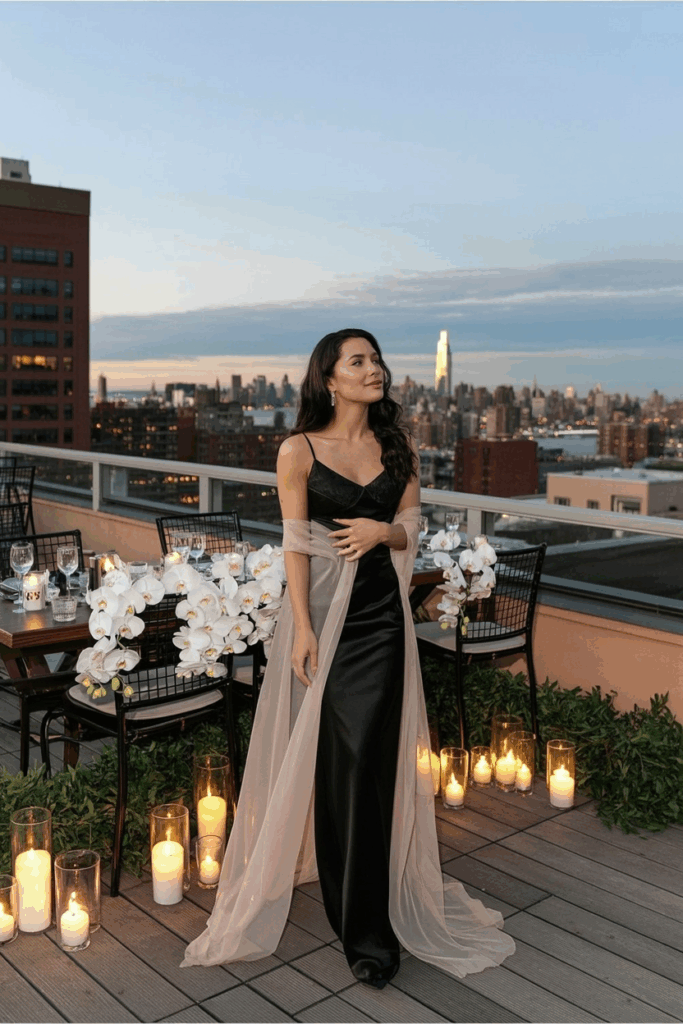
- Subtle ruching or draping to add dimension
- Velvet panels or satin sashes for contrast
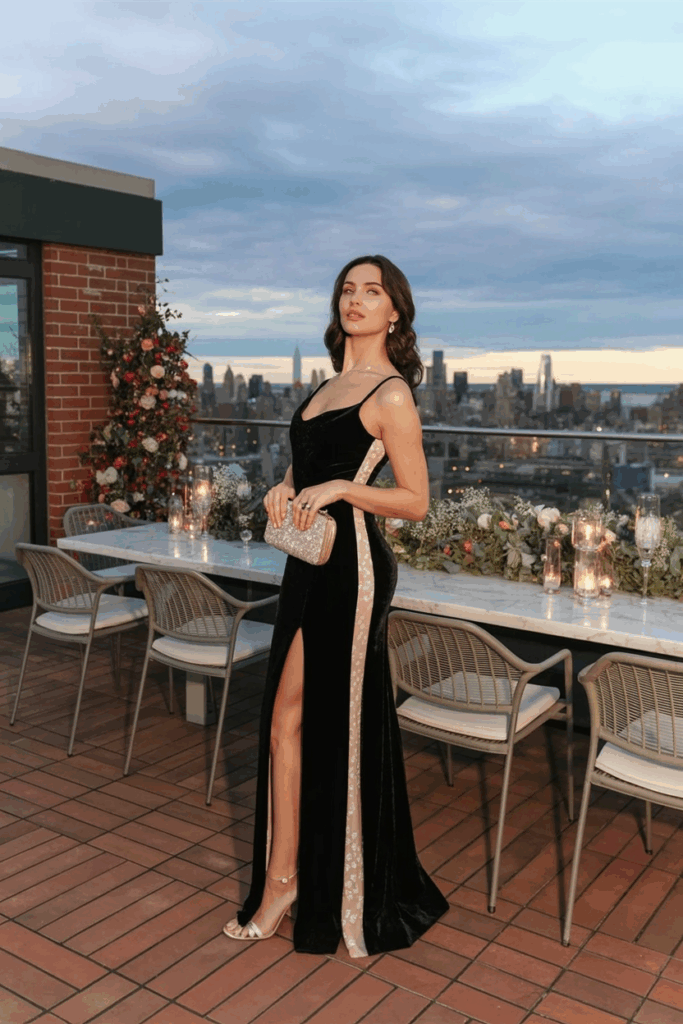
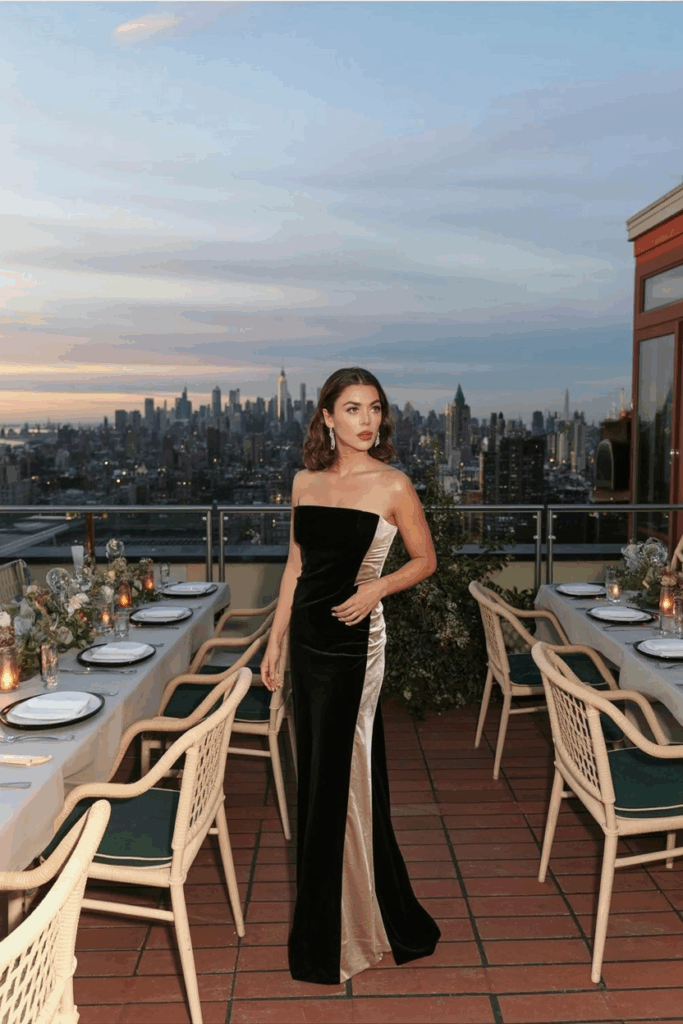
- Minimal embellishments like crystal straps or a single statement bow
Your dress should feel considered from every angle, not overly styled. Let it tell a quiet story in motion.
5. Sleeves, Straps & Structure
Sleeves are entirely appropriate for black tie, especially if you prefer coverage or are attending a cooler-season event.
Options to explore:
- Cap sleeves or sheer long sleeves
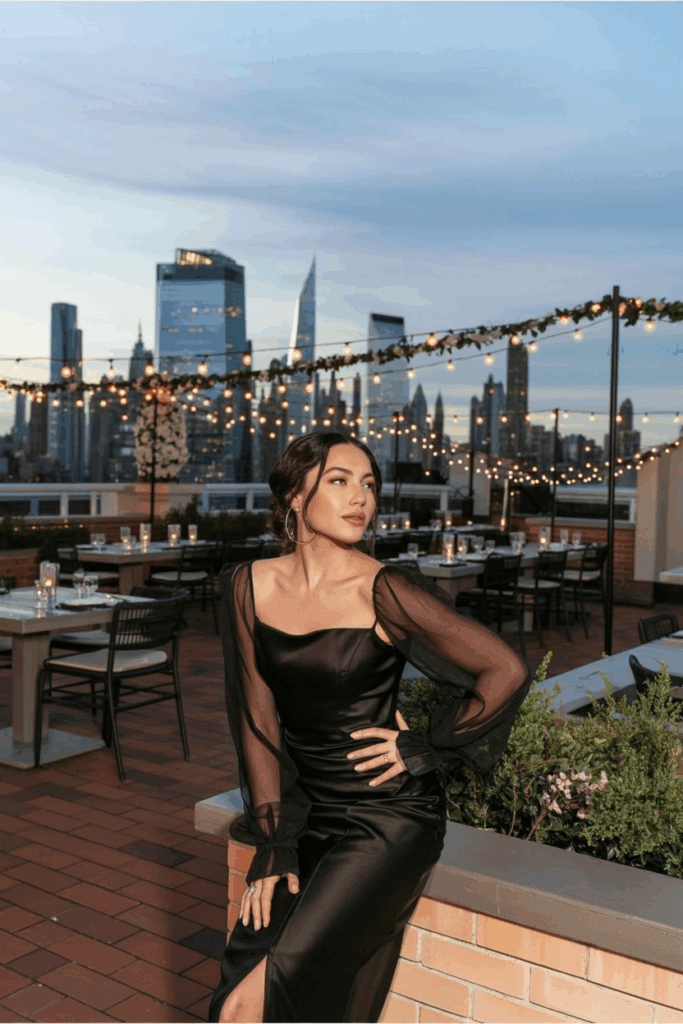
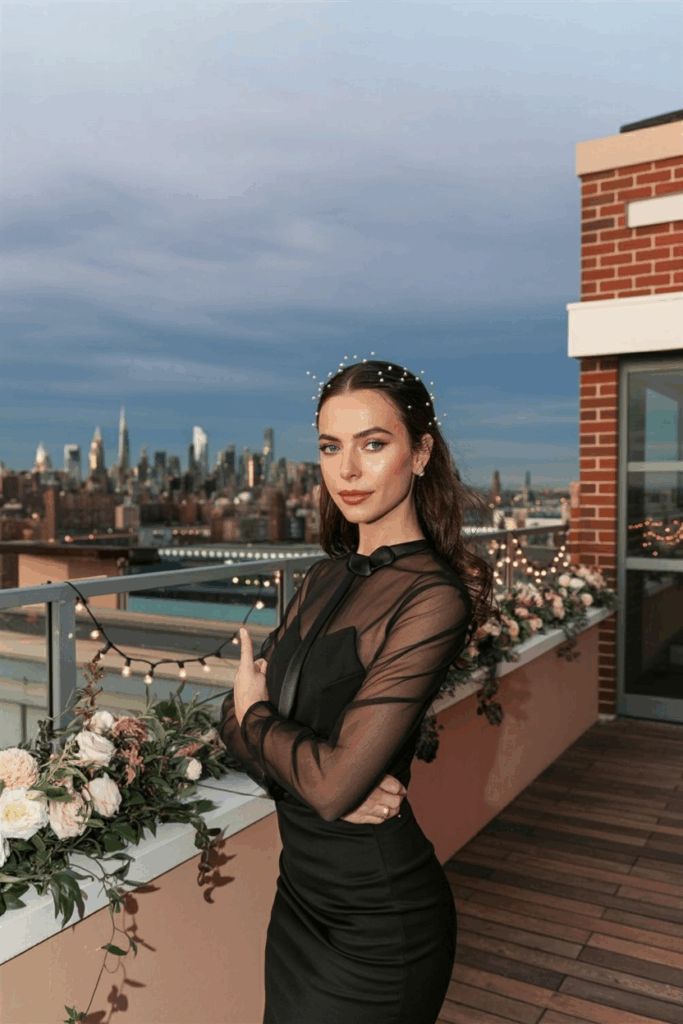
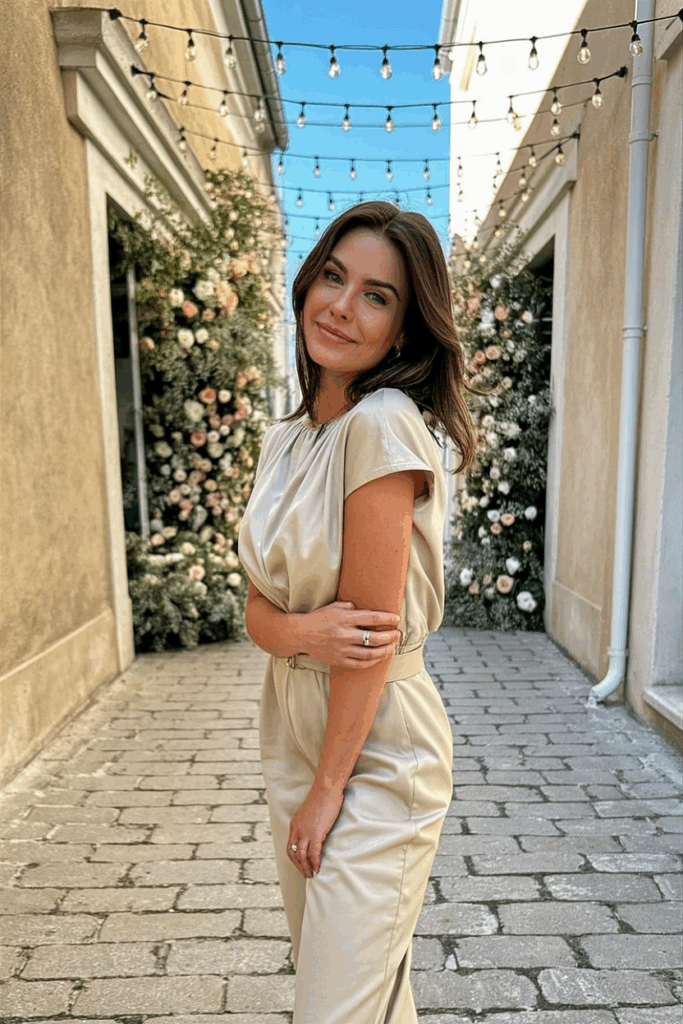
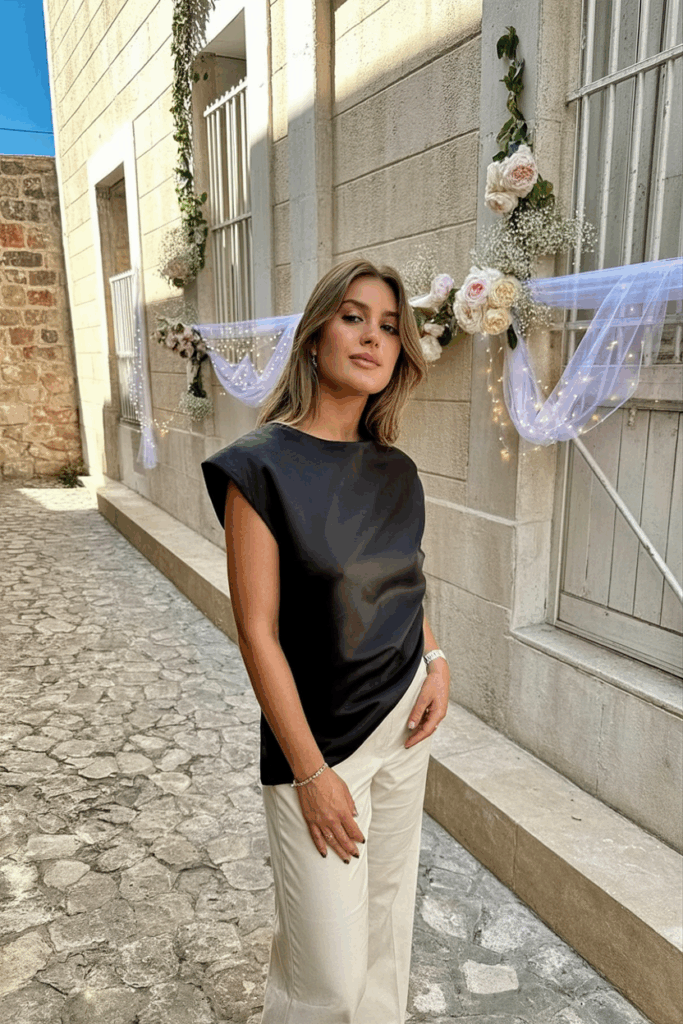
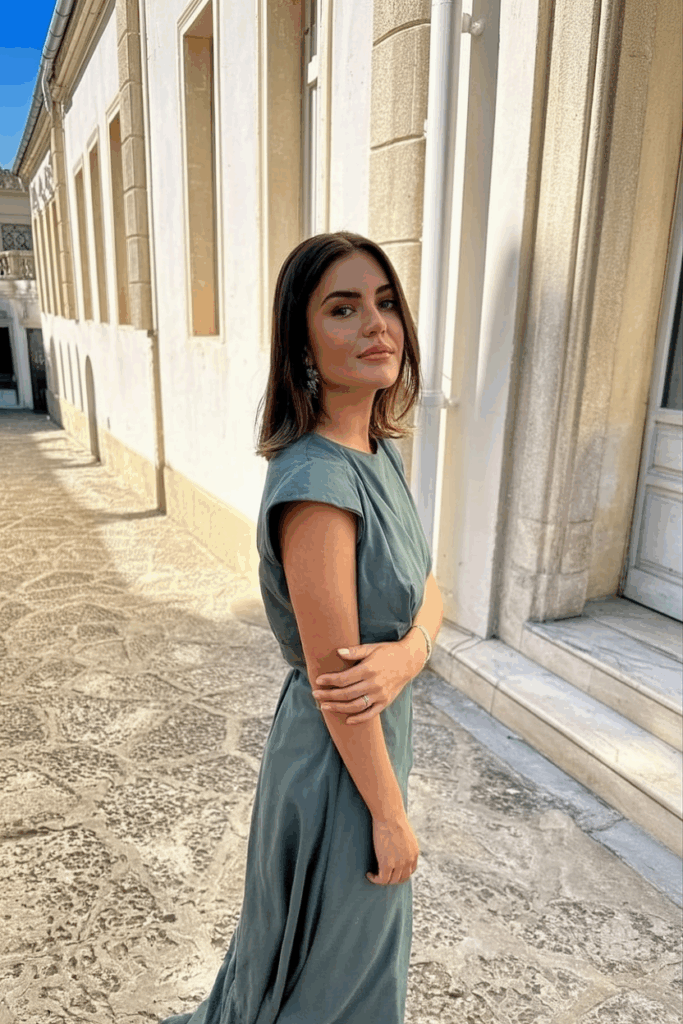
- Structured puff sleeves for a touch of drama
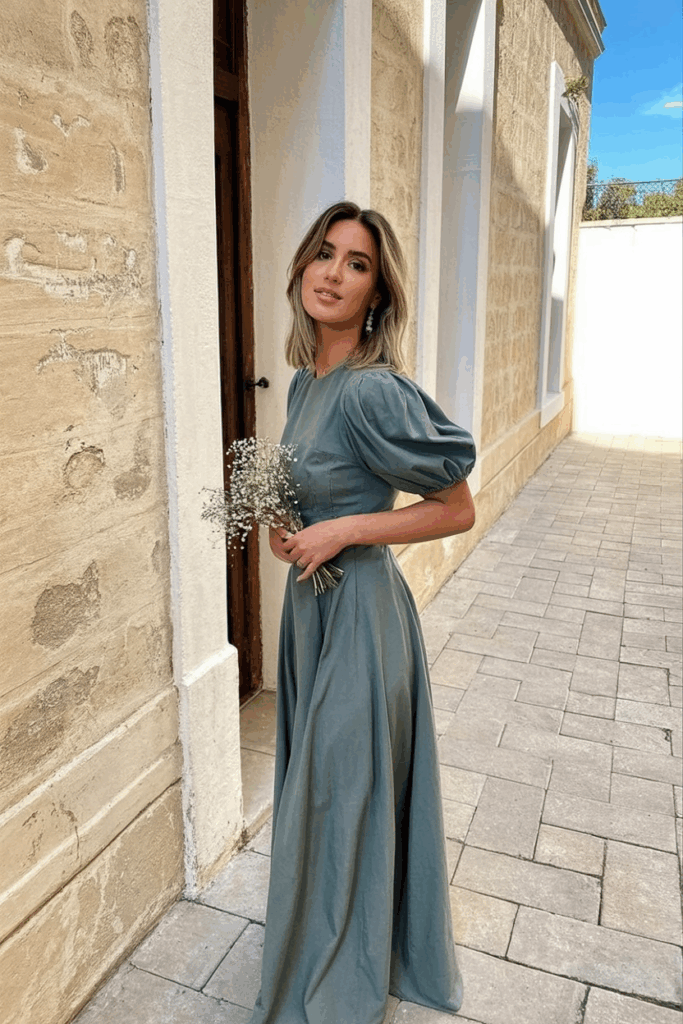
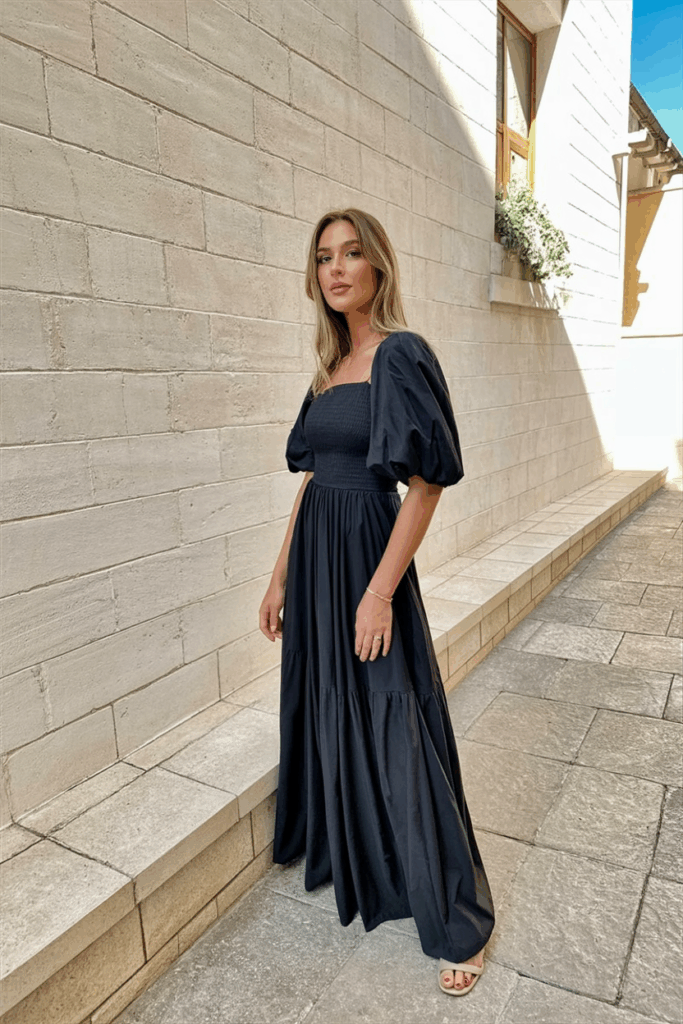
- Off-the-shoulder or one-shoulder gowns that add elegance with ease
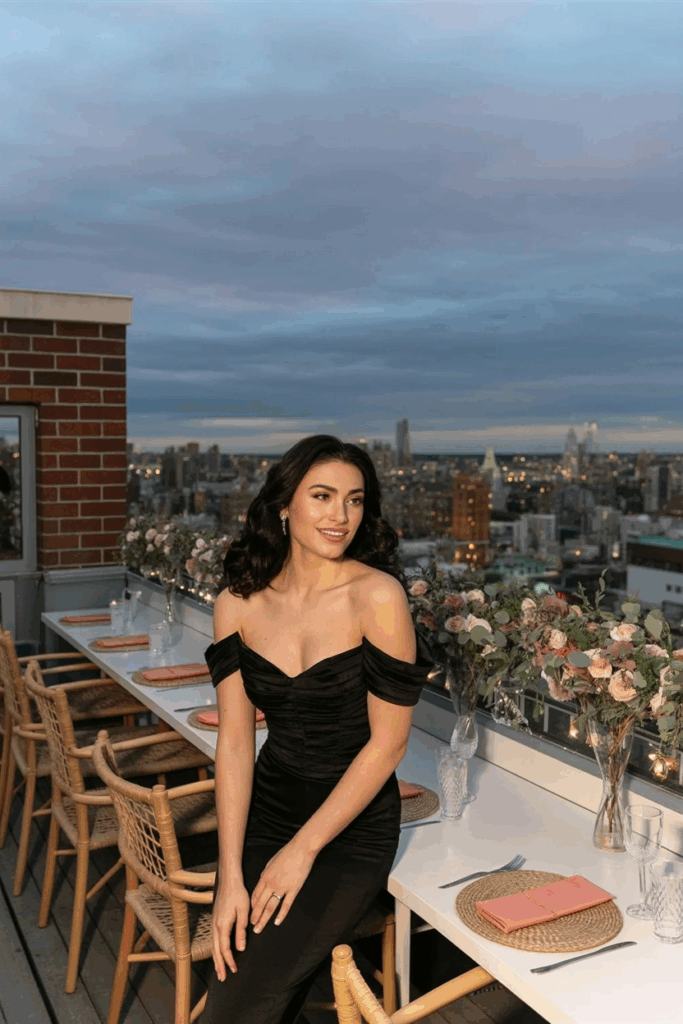
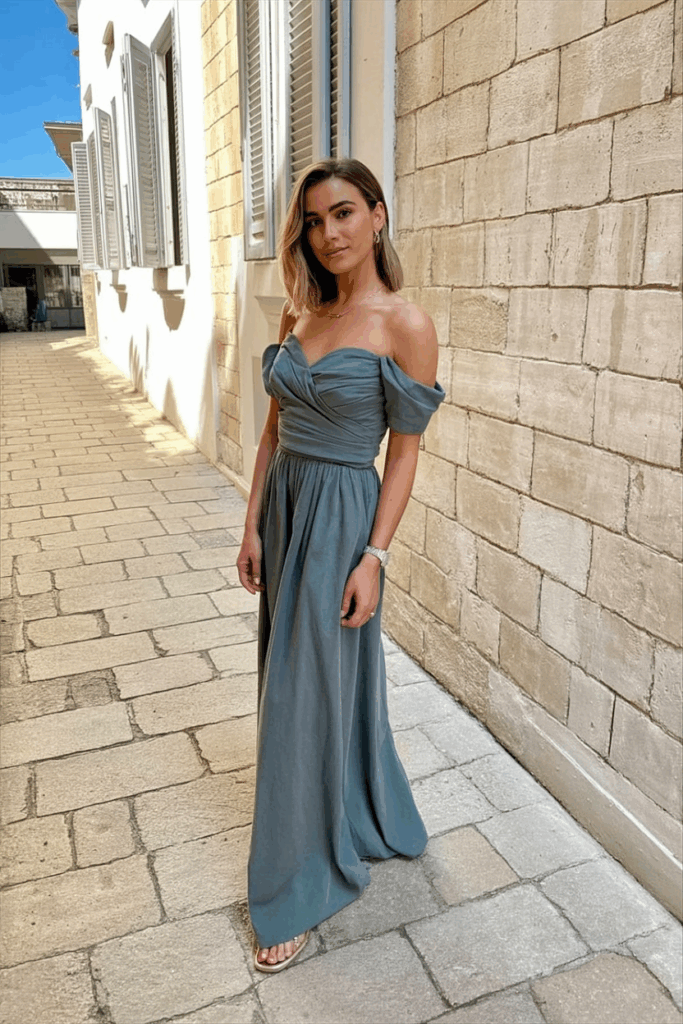
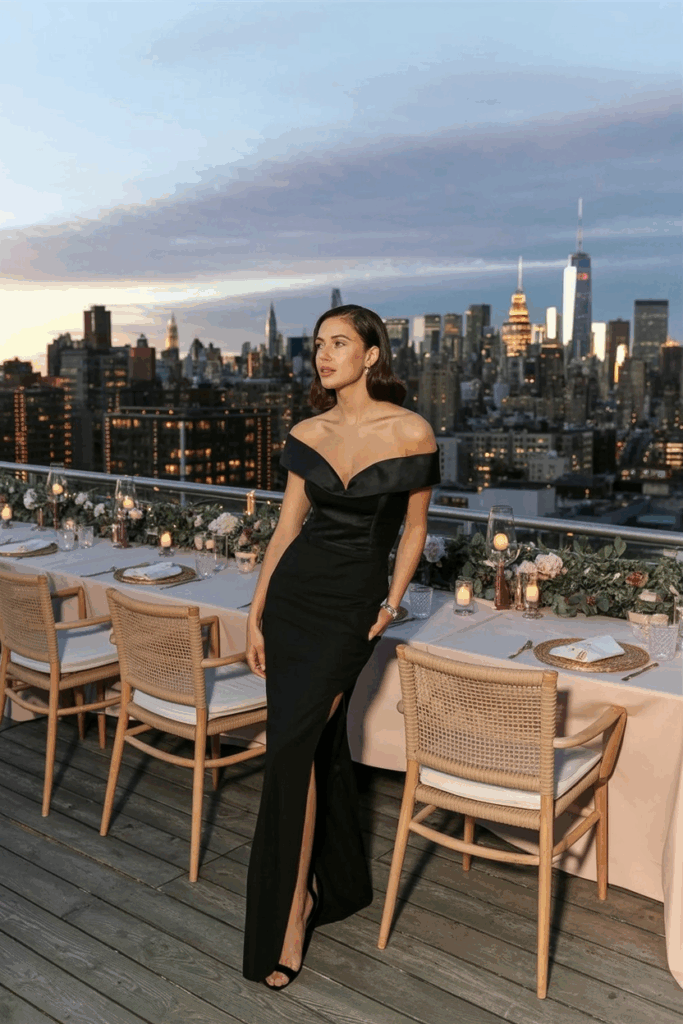
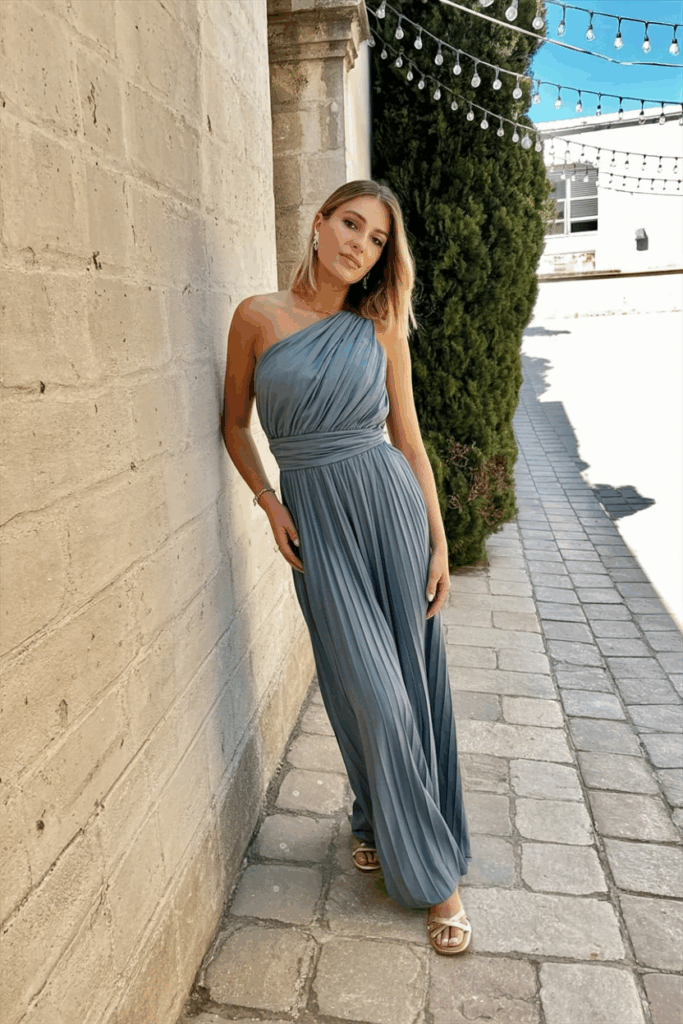
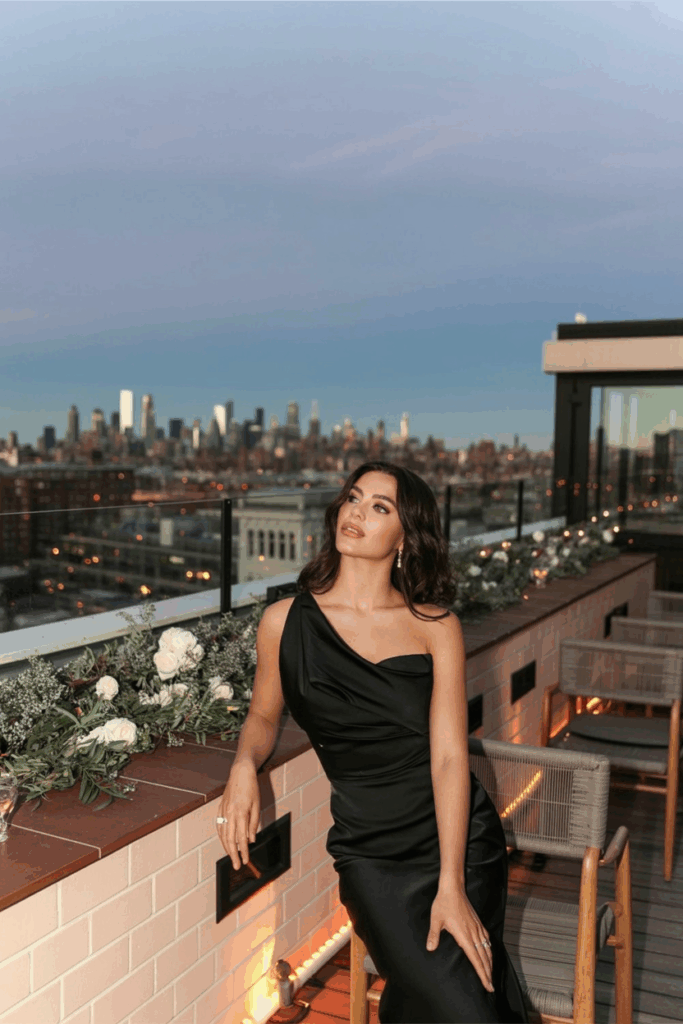
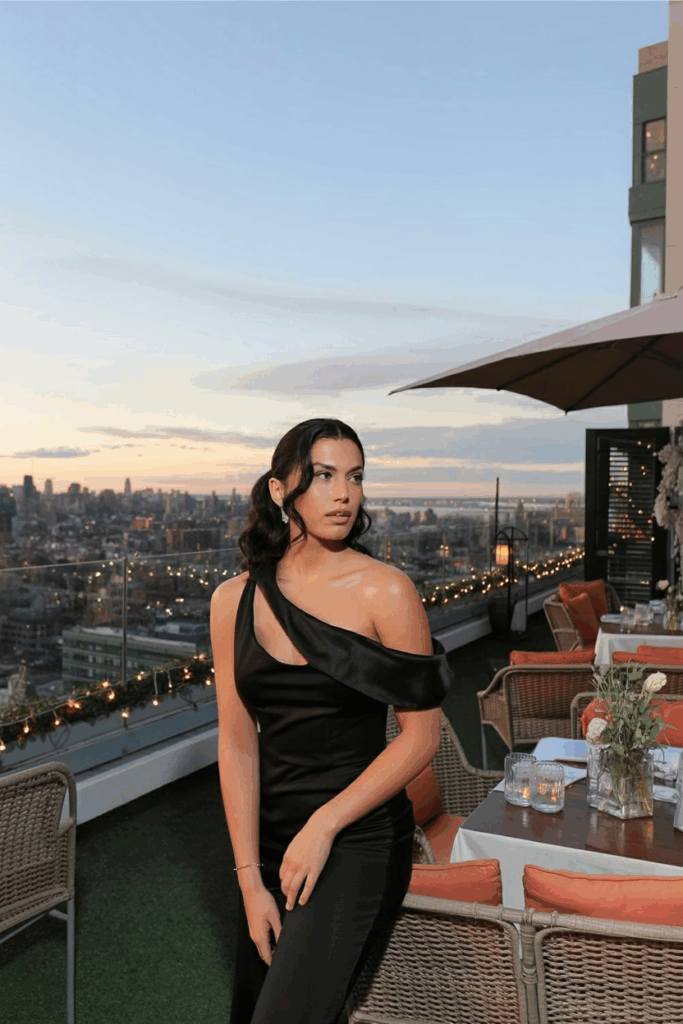
A strapless or sleeveless gown is also fitting—as long as it fits perfectly and stays secure through hours of celebration.
6. Footwear: Elegant, Practical, Polished
Your shoes should complete the look without competing with it. Prioritize comfort without sacrificing elegance—especially if you’ll be dancing or standing for long stretches.
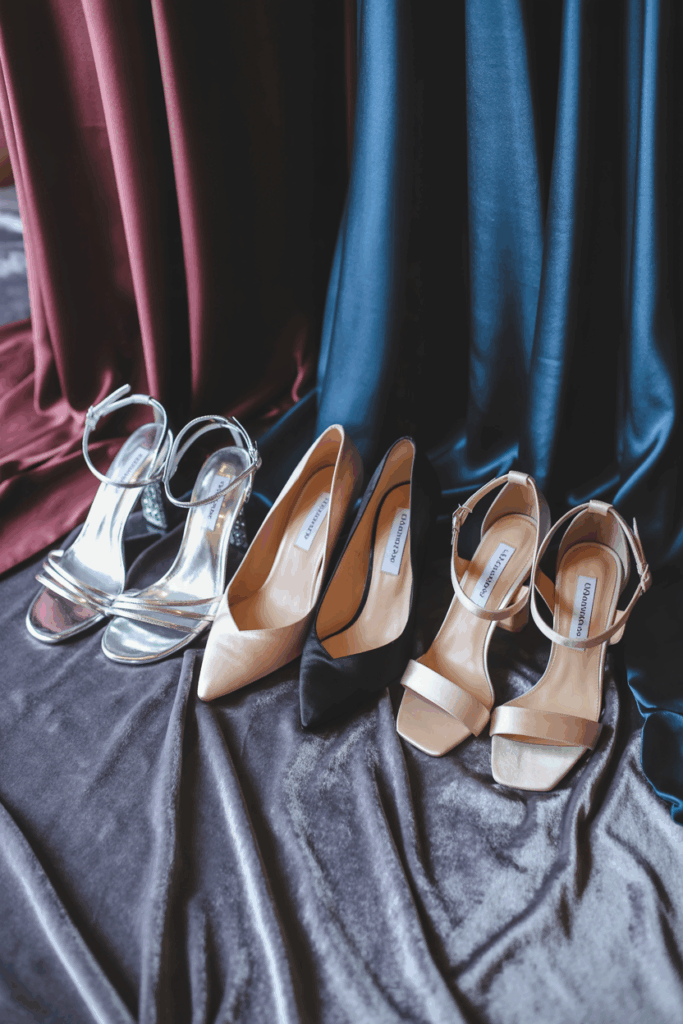
Best picks:
- Strappy heels in metallics or satin
- Closed-toe pointed pumps for classic polish
- Block-heeled sandals for support and style
Stick to neutral tones (black, nude, champagne, silver, or gold). Avoid casual wedges or overly trendy platforms.
7. Accessories: Less, but Luxurious
Black tie accessories should whisper, not shout. Let one or two pieces make the statement.
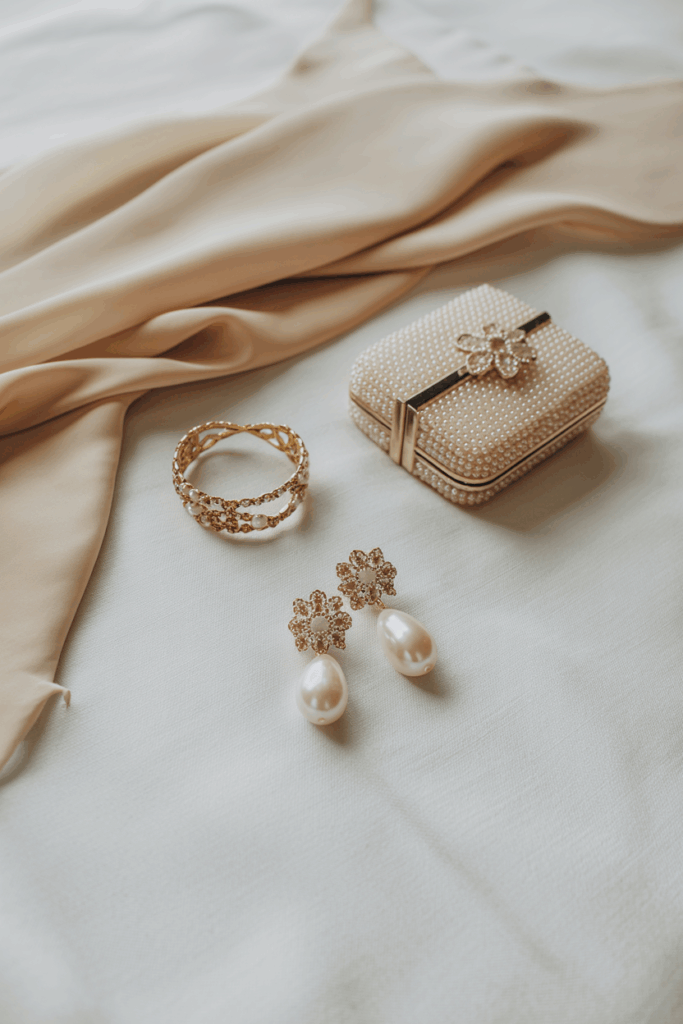
Choose:
- Delicate drop earrings or a single bold cuff
- A small satin clutch or beaded minaudière
- Silk wraps or shawls for shoulder coverage if needed
Jewelry should echo the mood of the dress—never more sparkly, never less considered.
8. Hair & Beauty: Soft Sophistication
Hair and makeup complete the formal story—but they don’t need to be complicated.
Hair:
- Soft waves, a low chignon, or a sleek bun
- If down, keep it brushed and polished
- Use hair accessories sparingly (a pearl clip, a thin barrette)
Makeup:
- A luminous base, soft contour, and defined eyes
- Opt for a classic red lip or a soft rose tone
- Avoid heavy glitter or overdone highlighter—glow, don’t gleam
Conclusion: Presence Over Performance
That’s what I’ve come to appreciate about black tie dressing.
It’s not about outshining anyone—it’s about showing up with intention.
Quiet, composed, fully present.
When you choose a dress that feels right—one that moves with you, fits you, and doesn’t need to prove anything—you create something more lasting than a first impression. You create presence.
Hope this helped. Thanks for reading.
